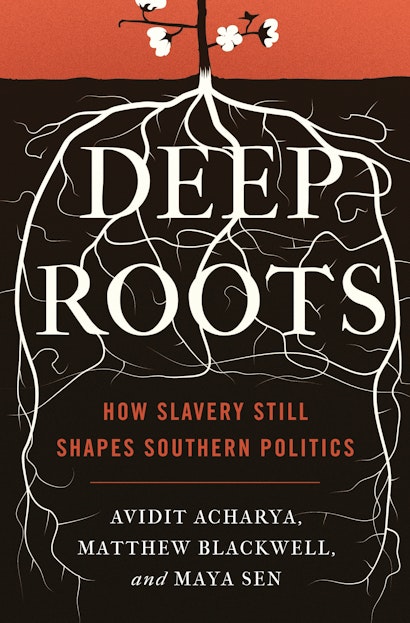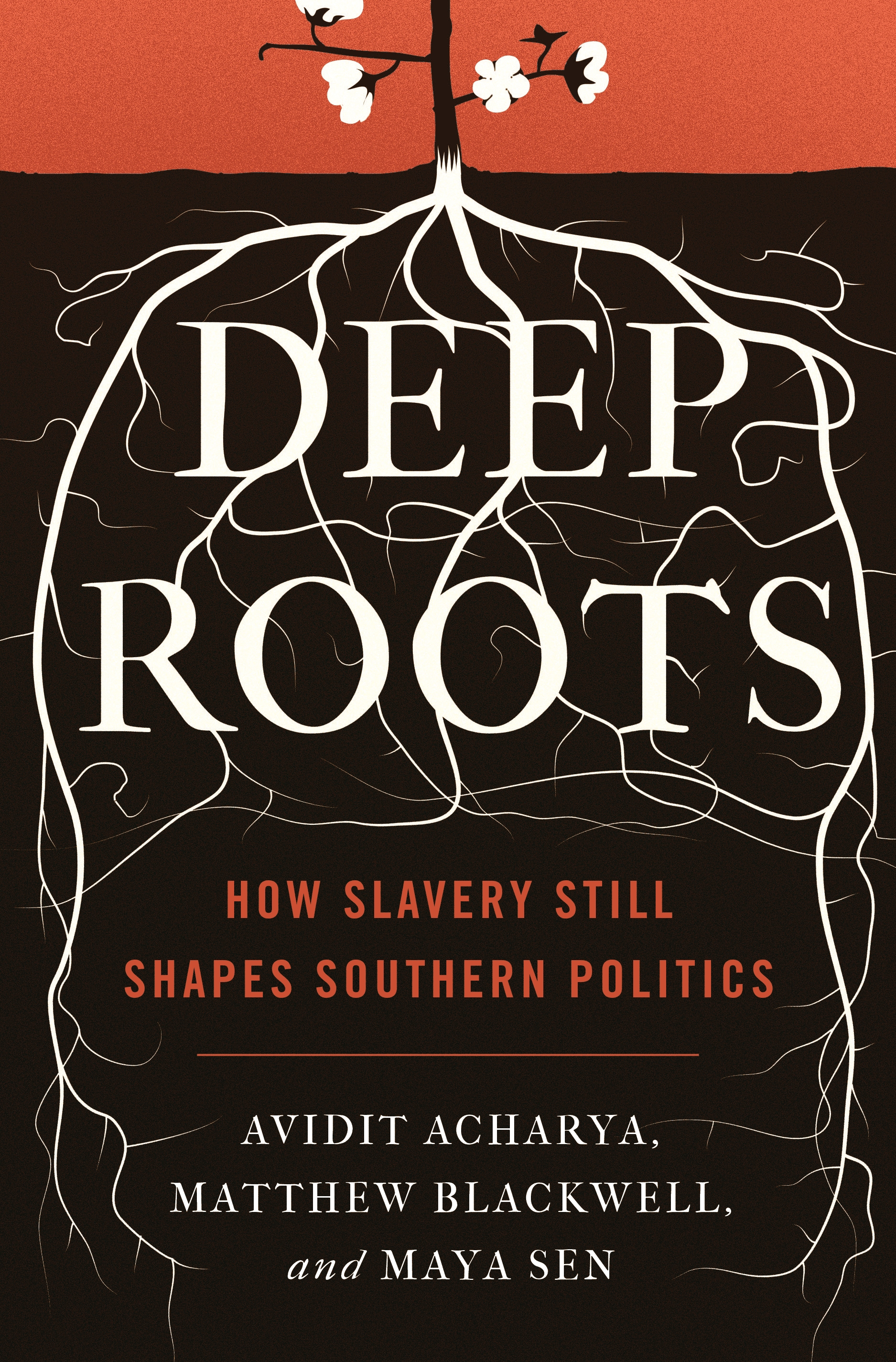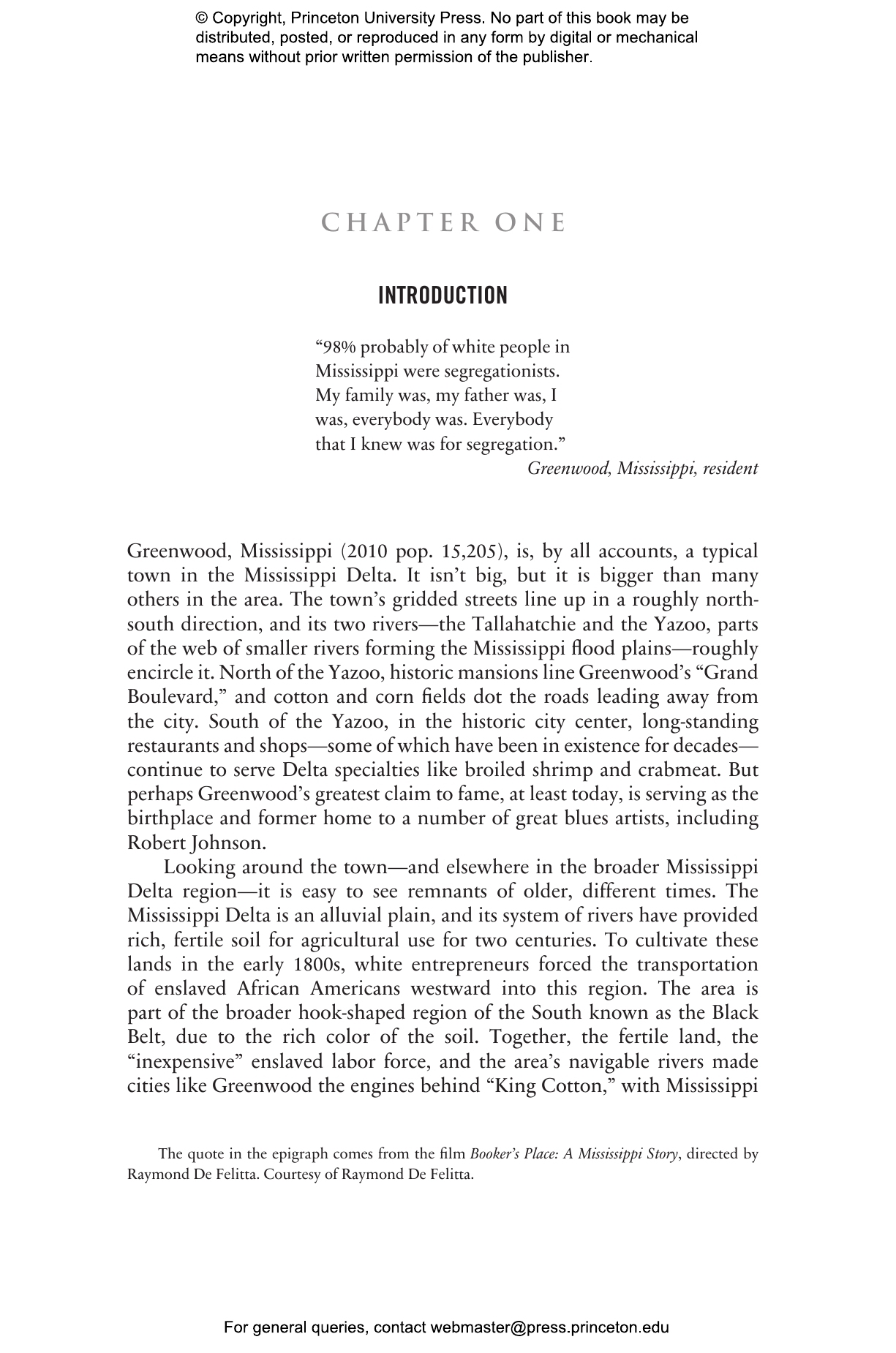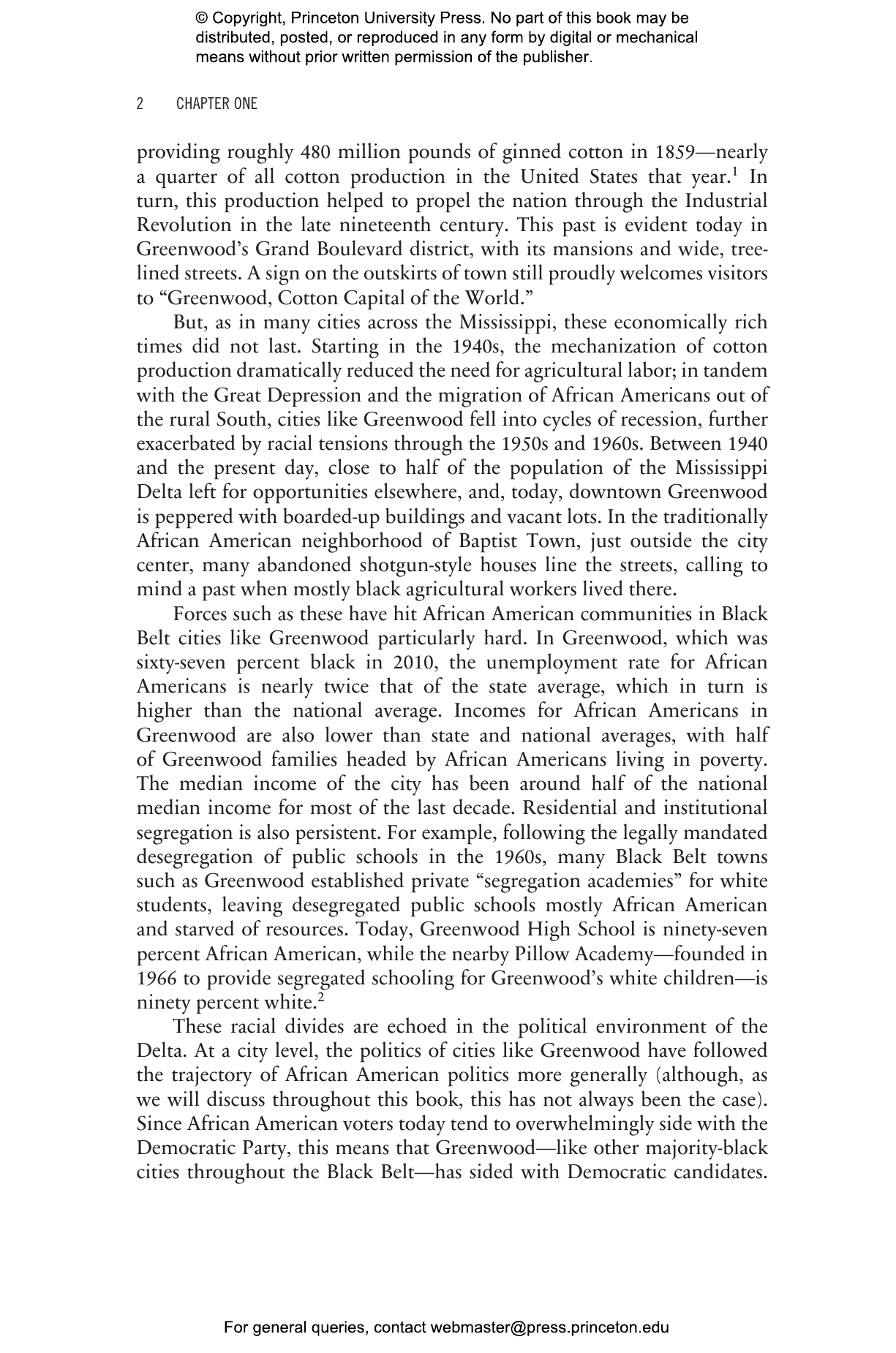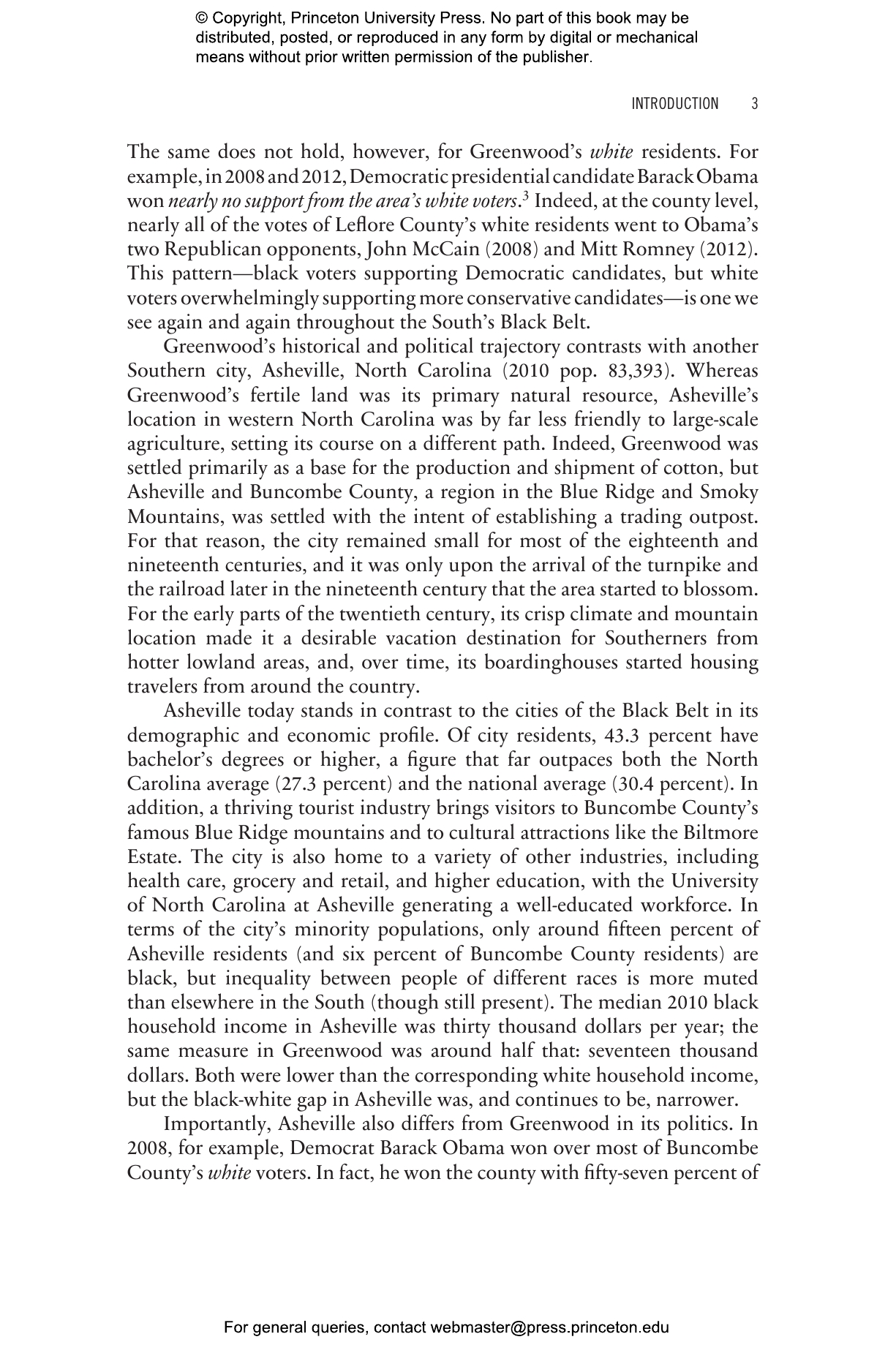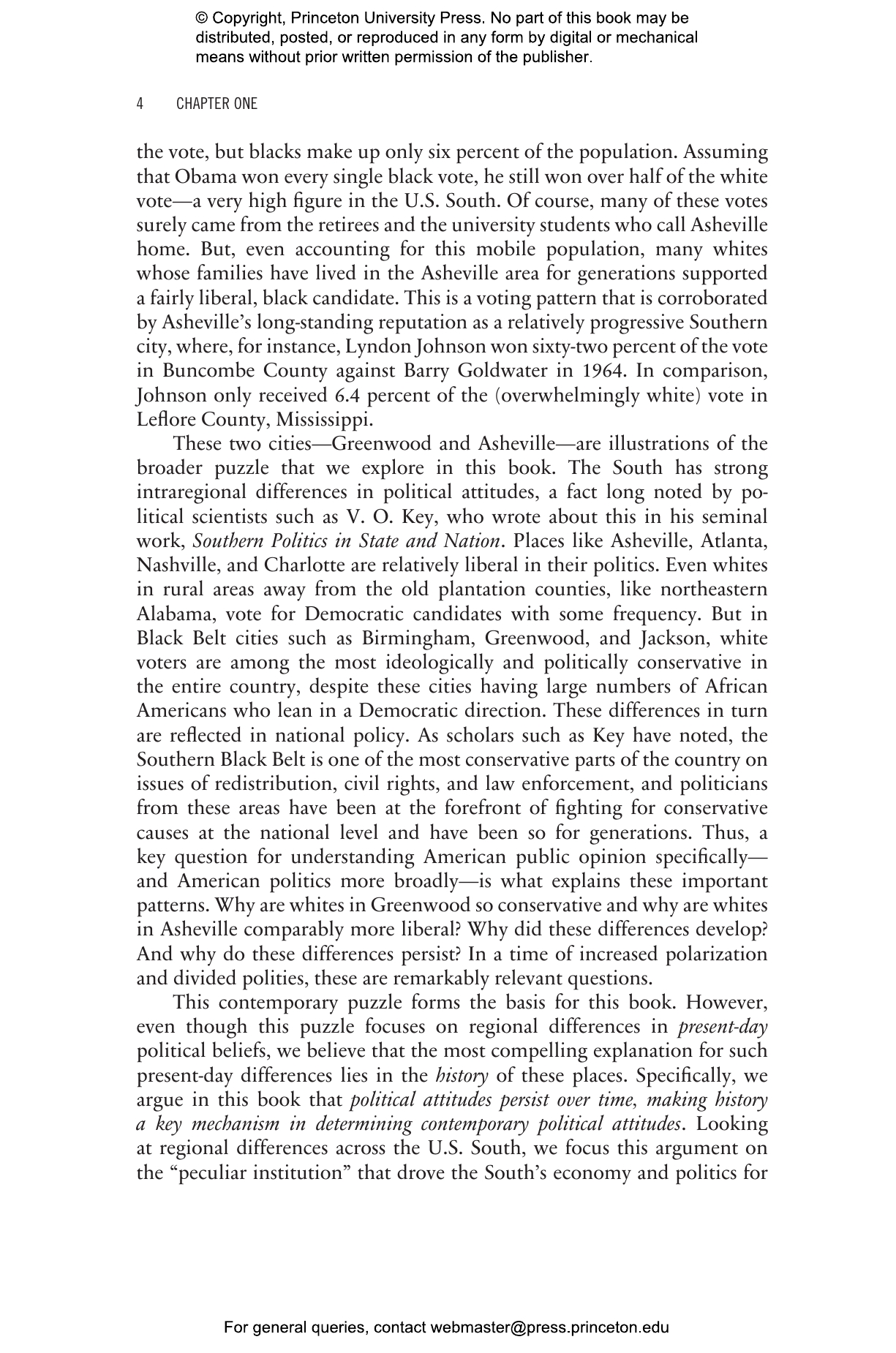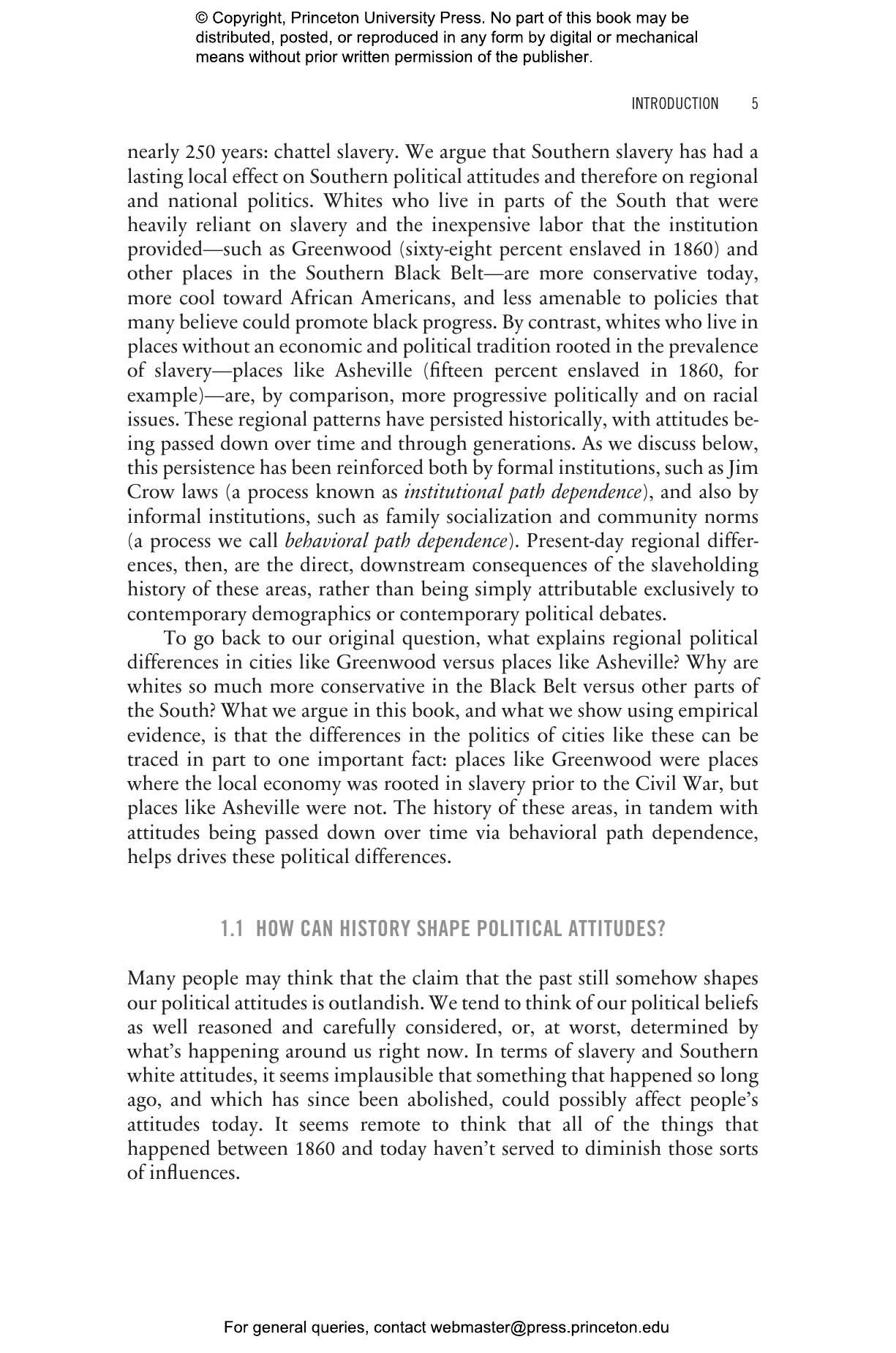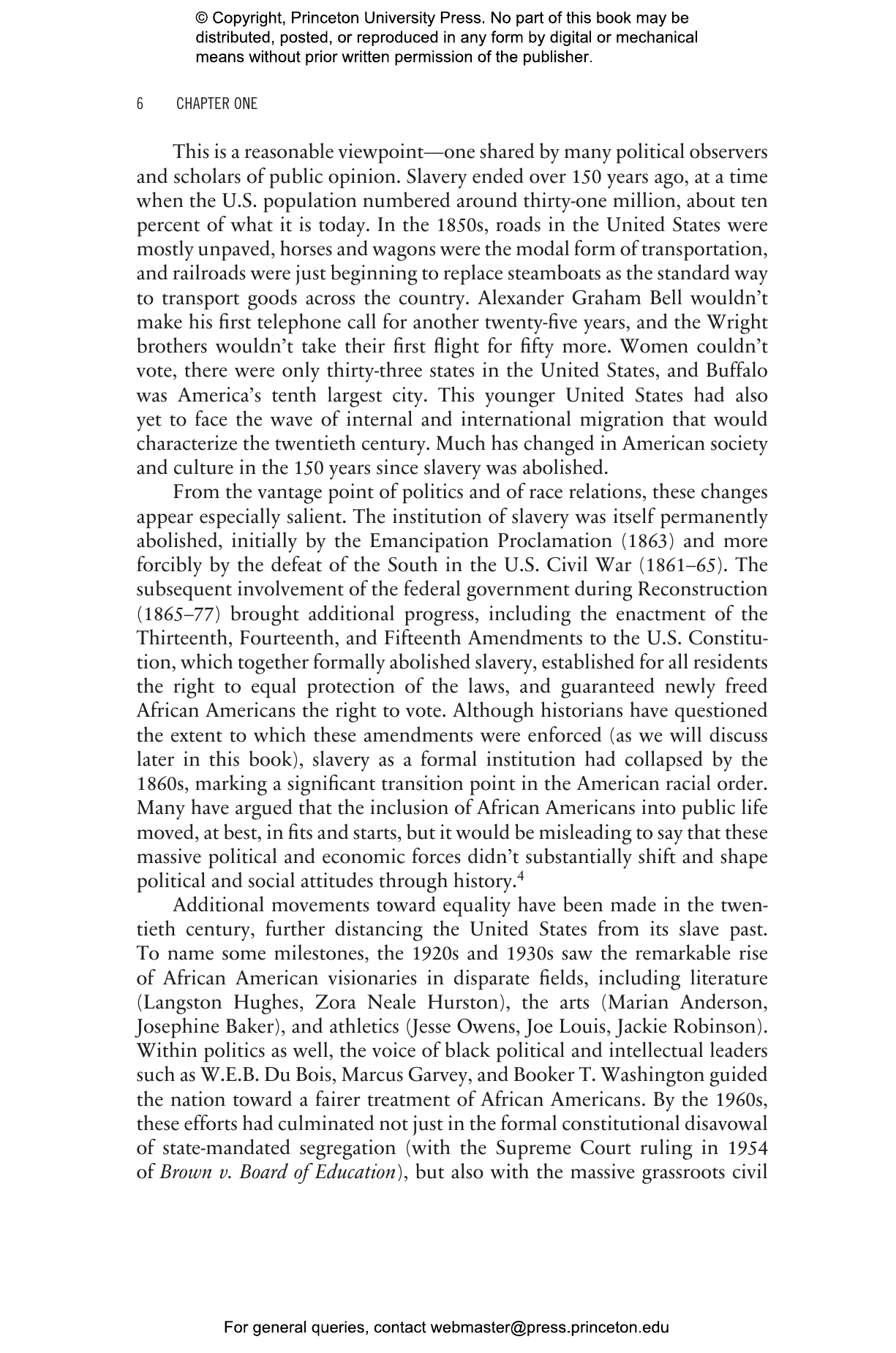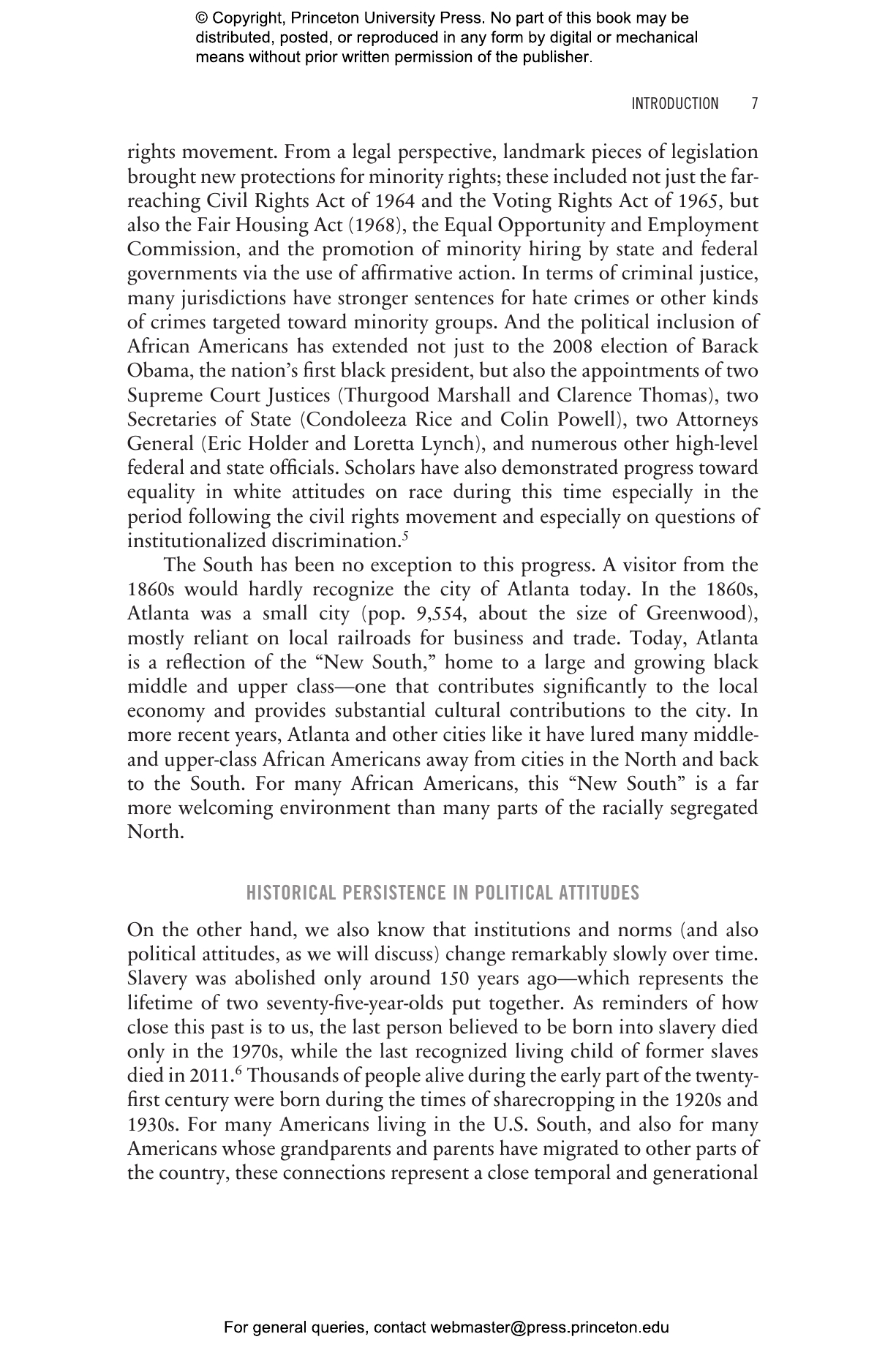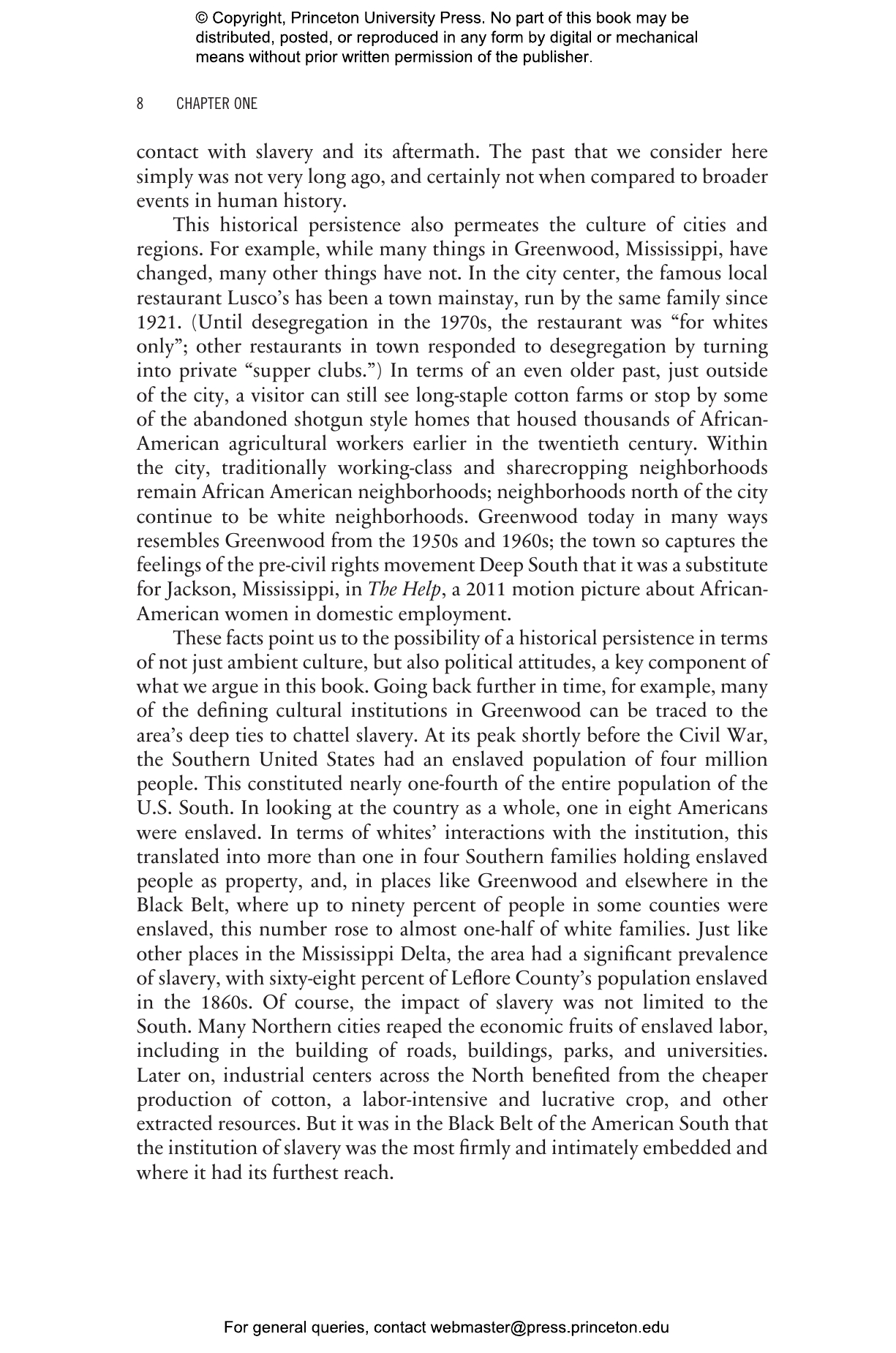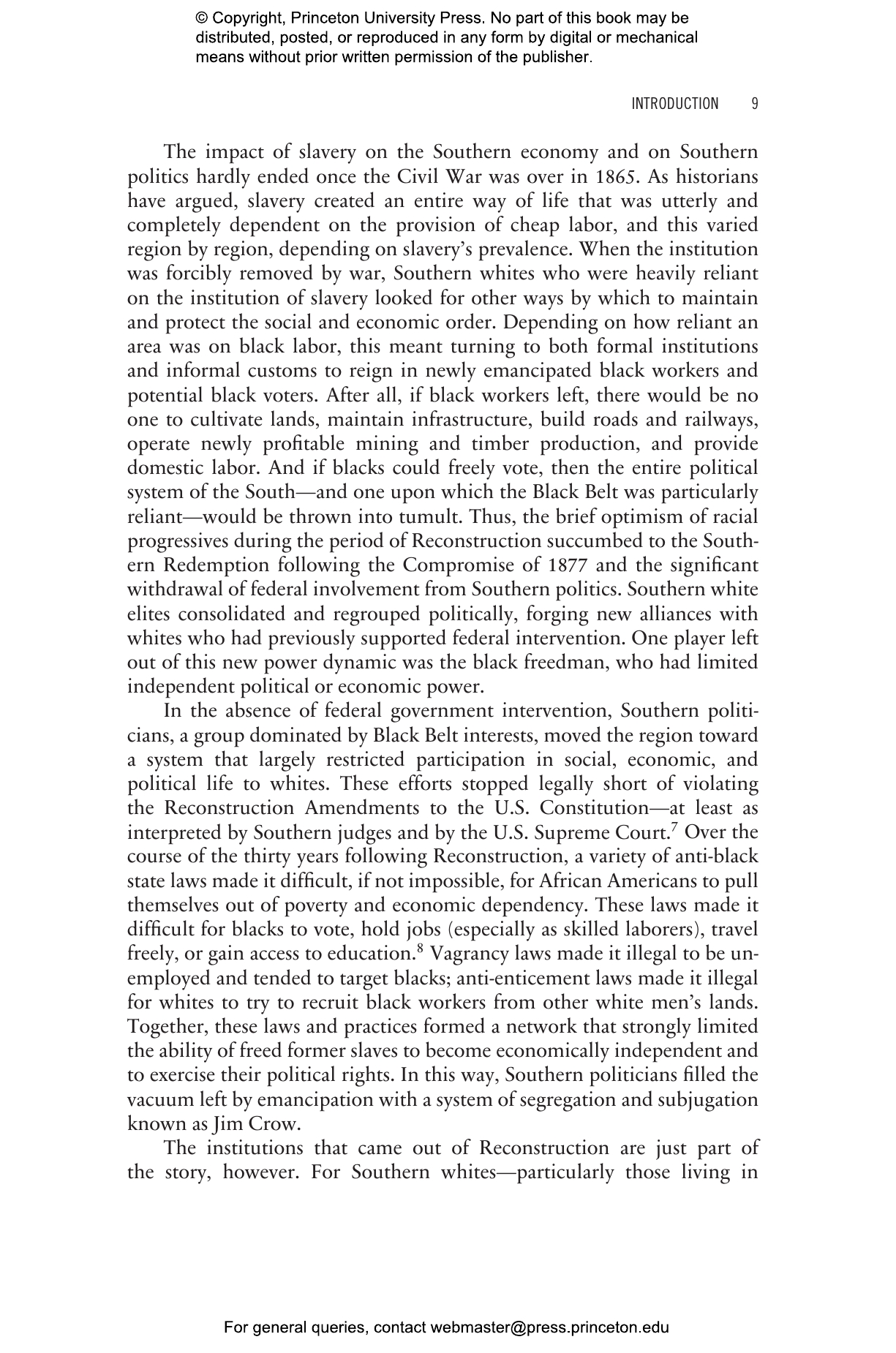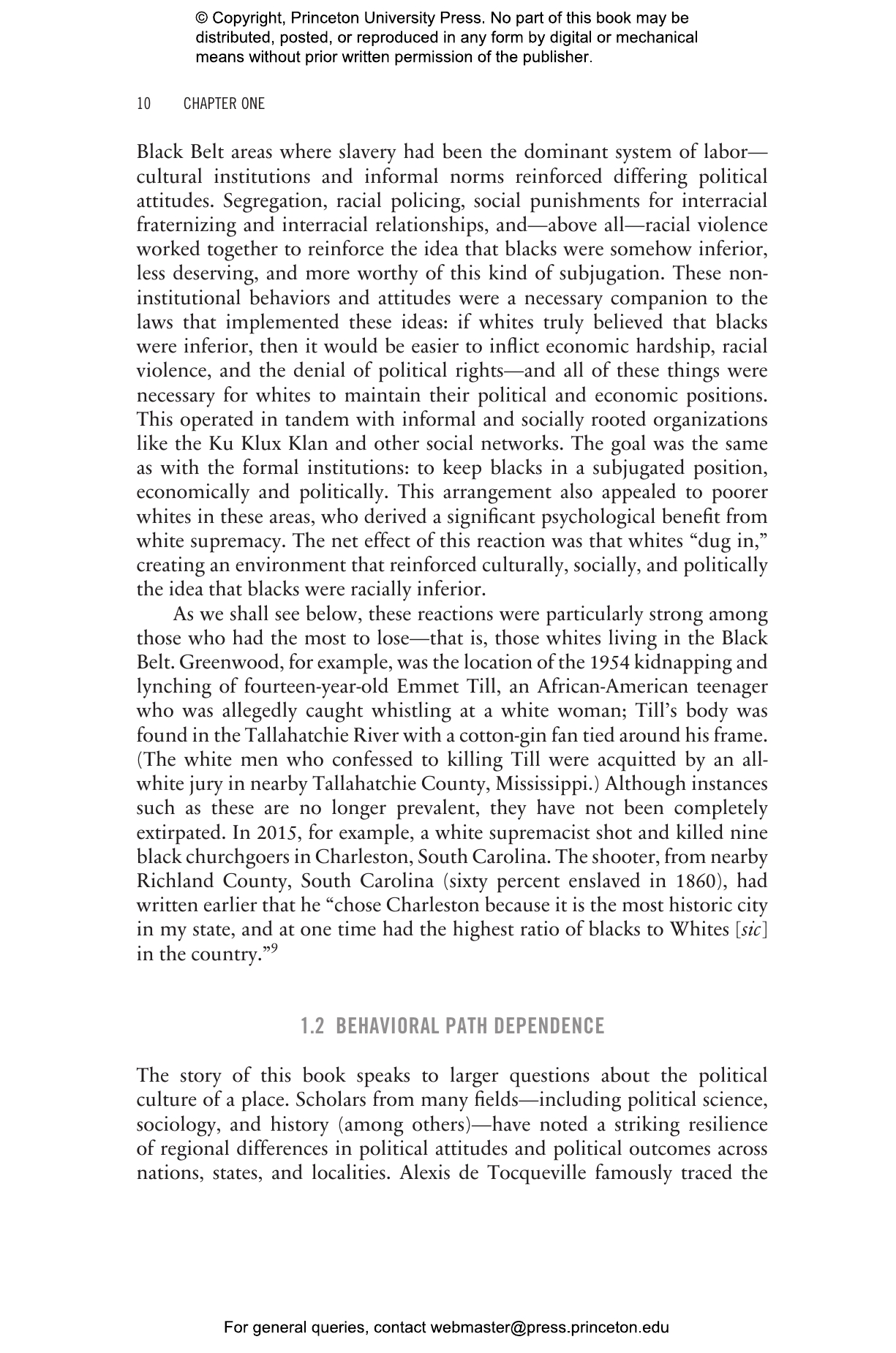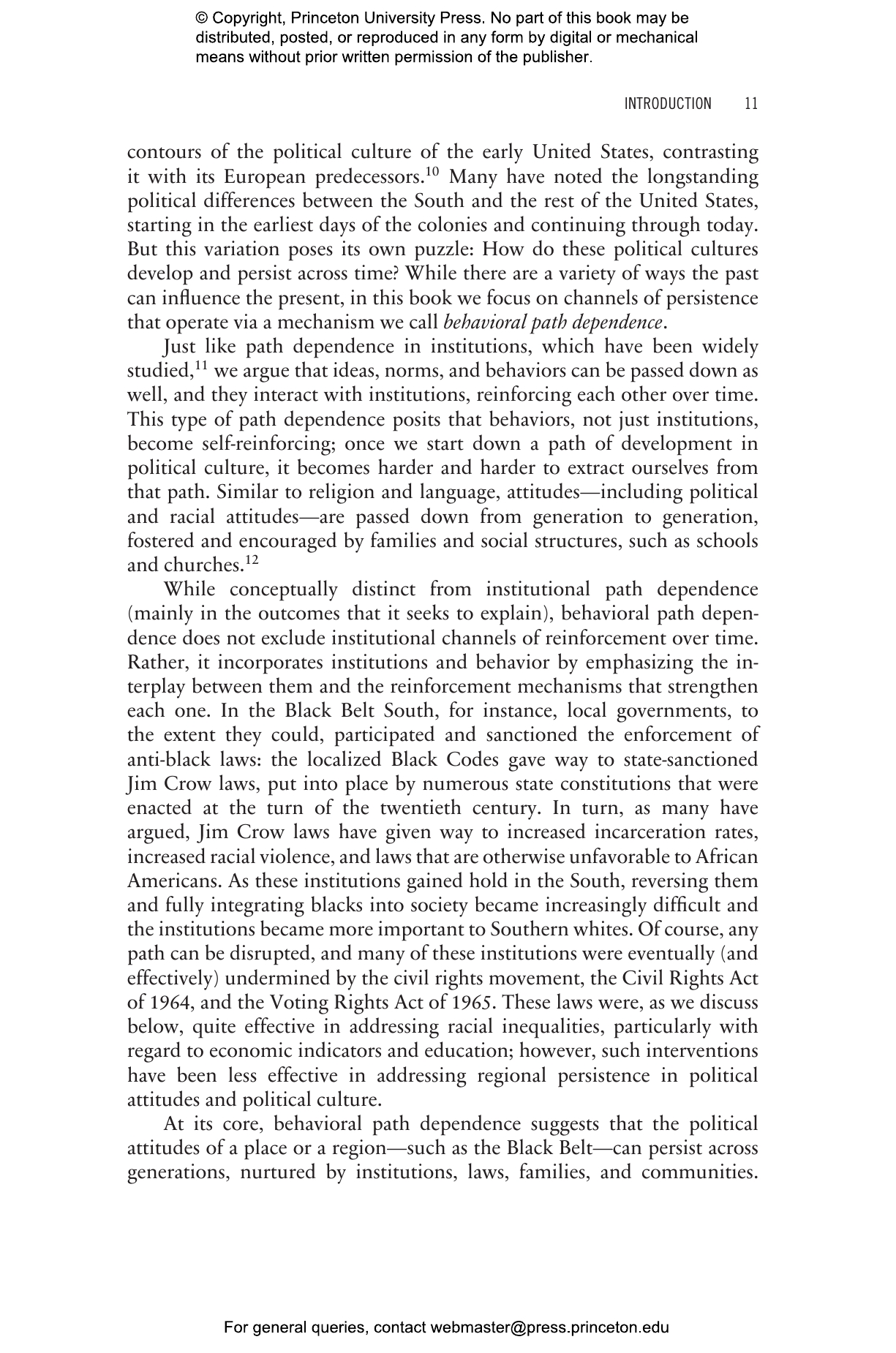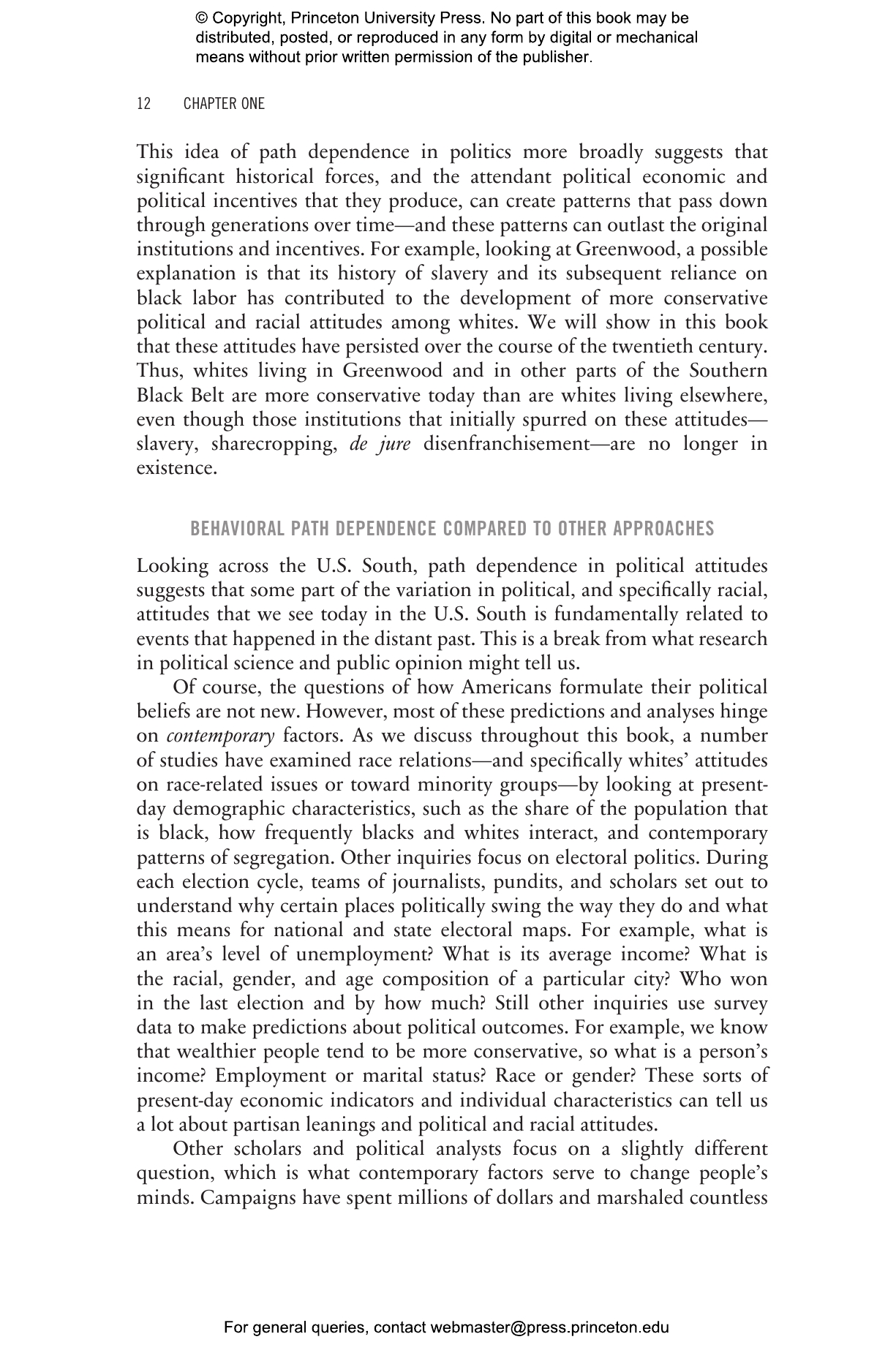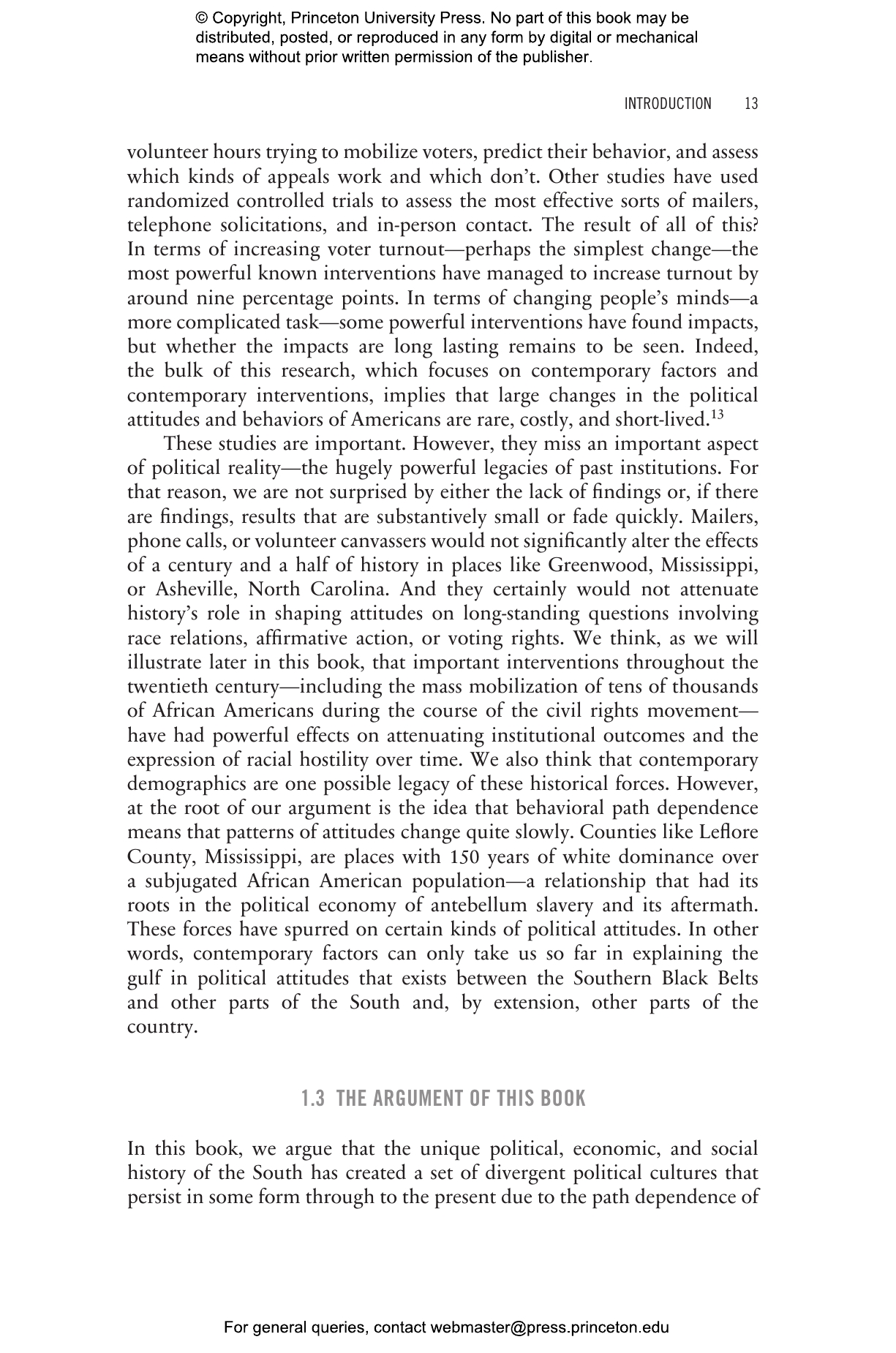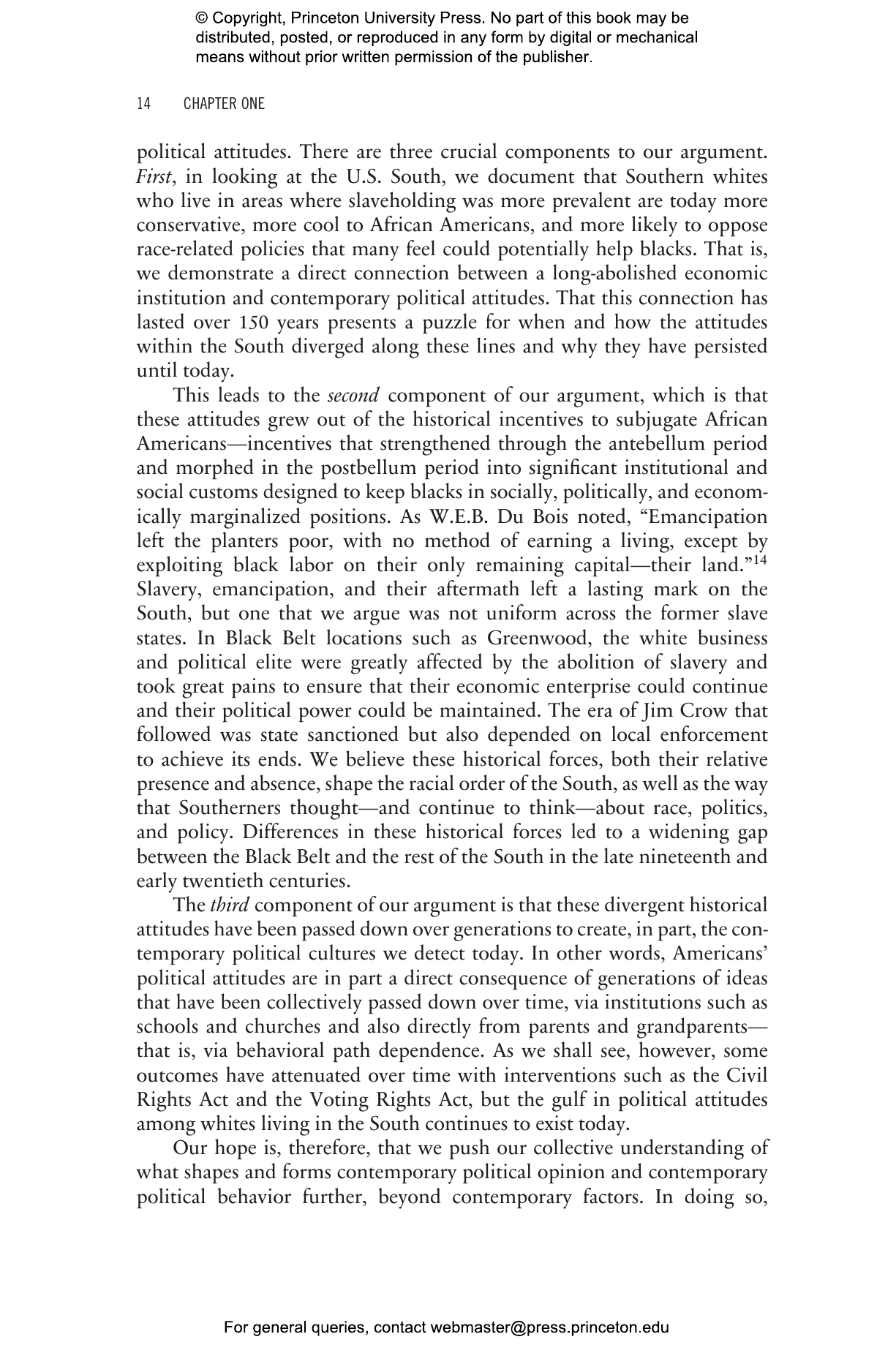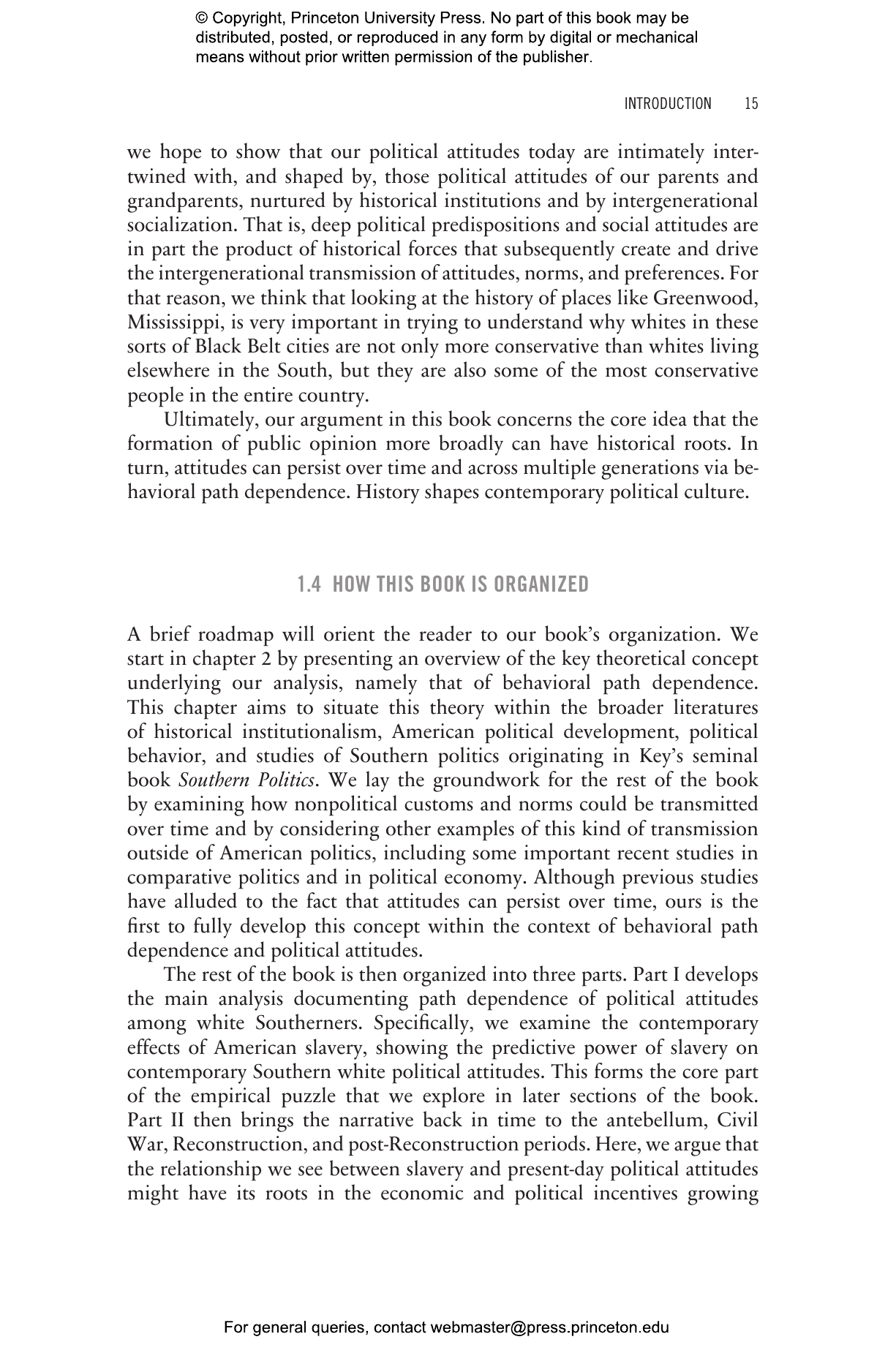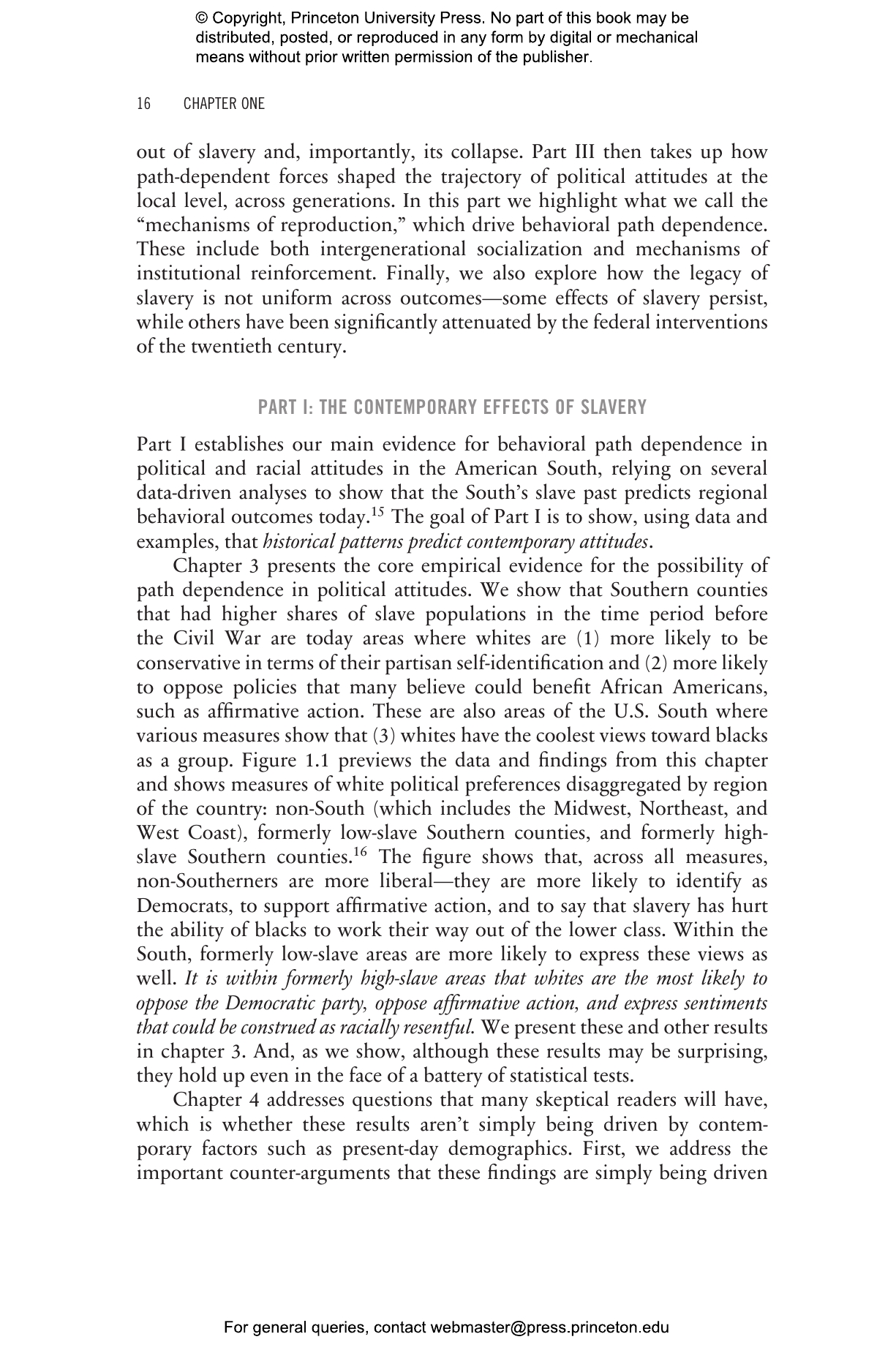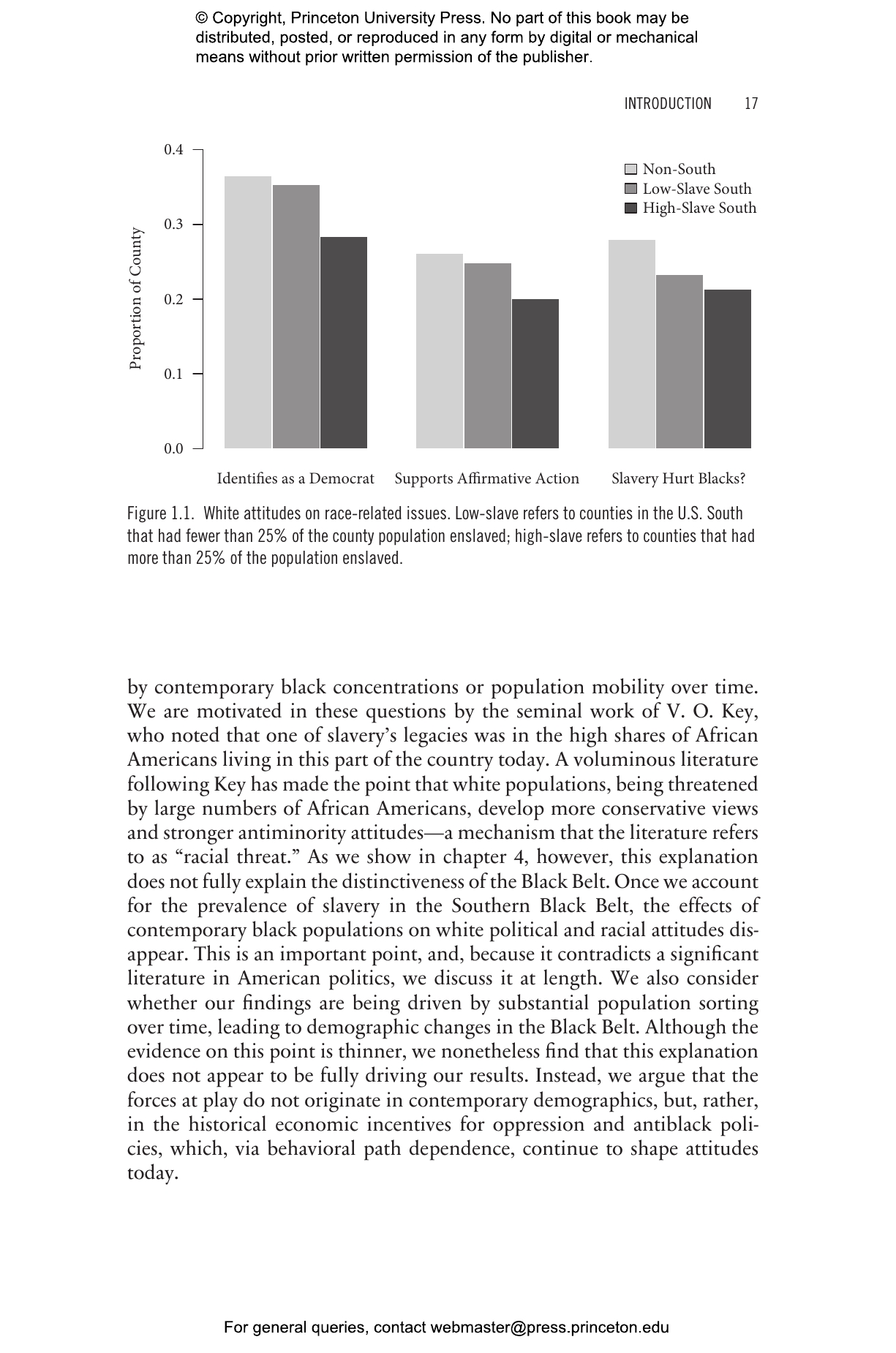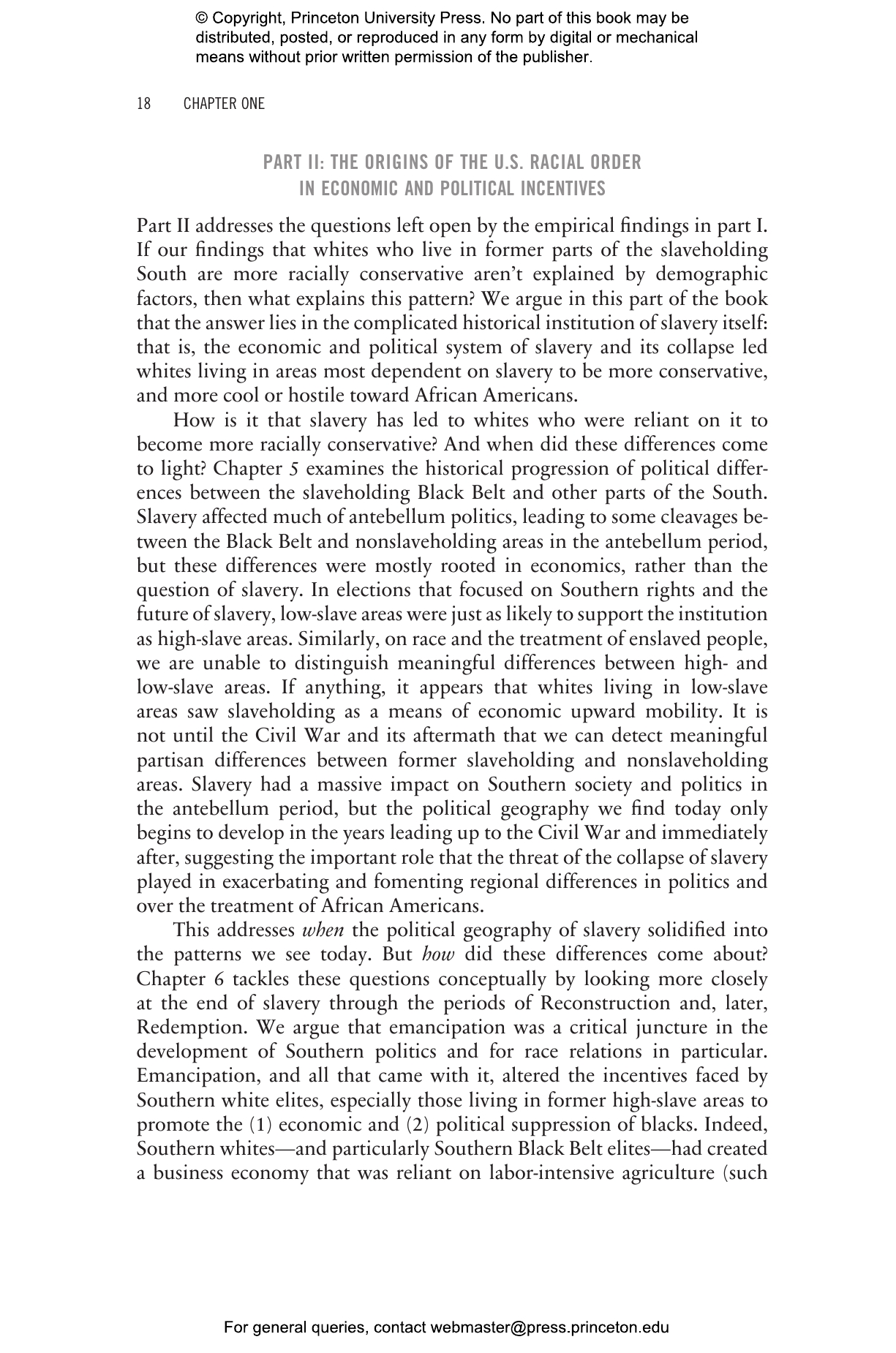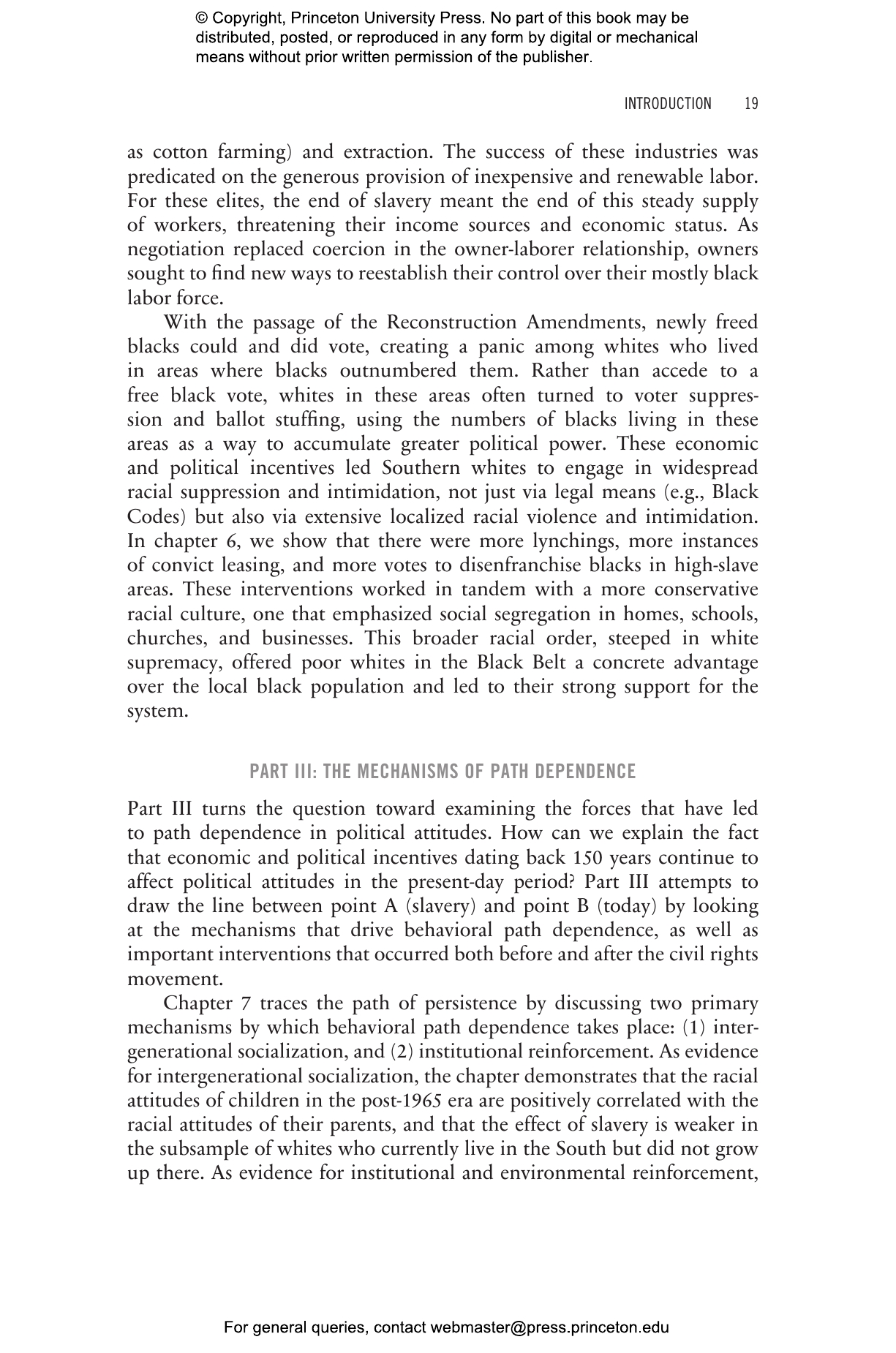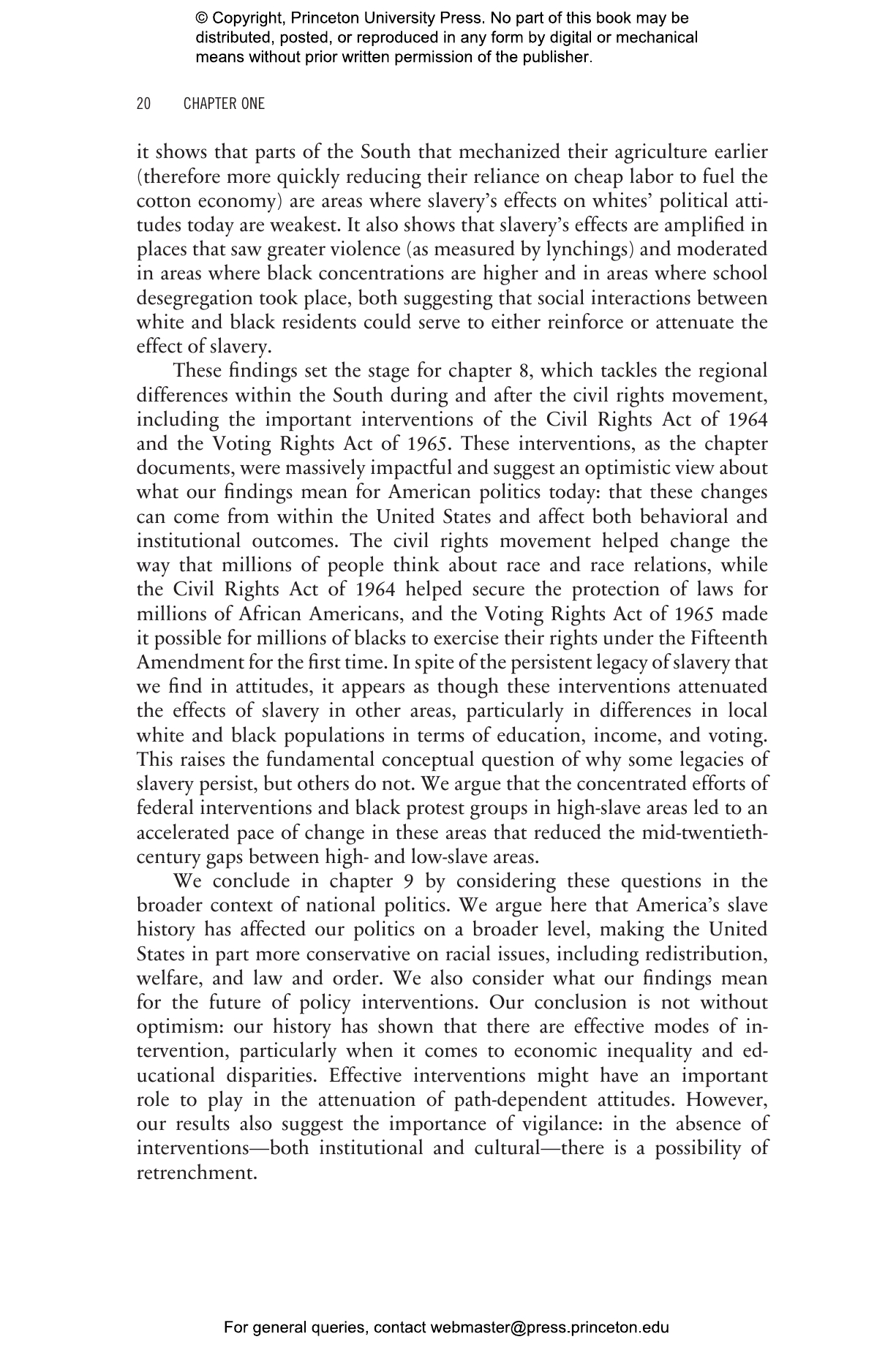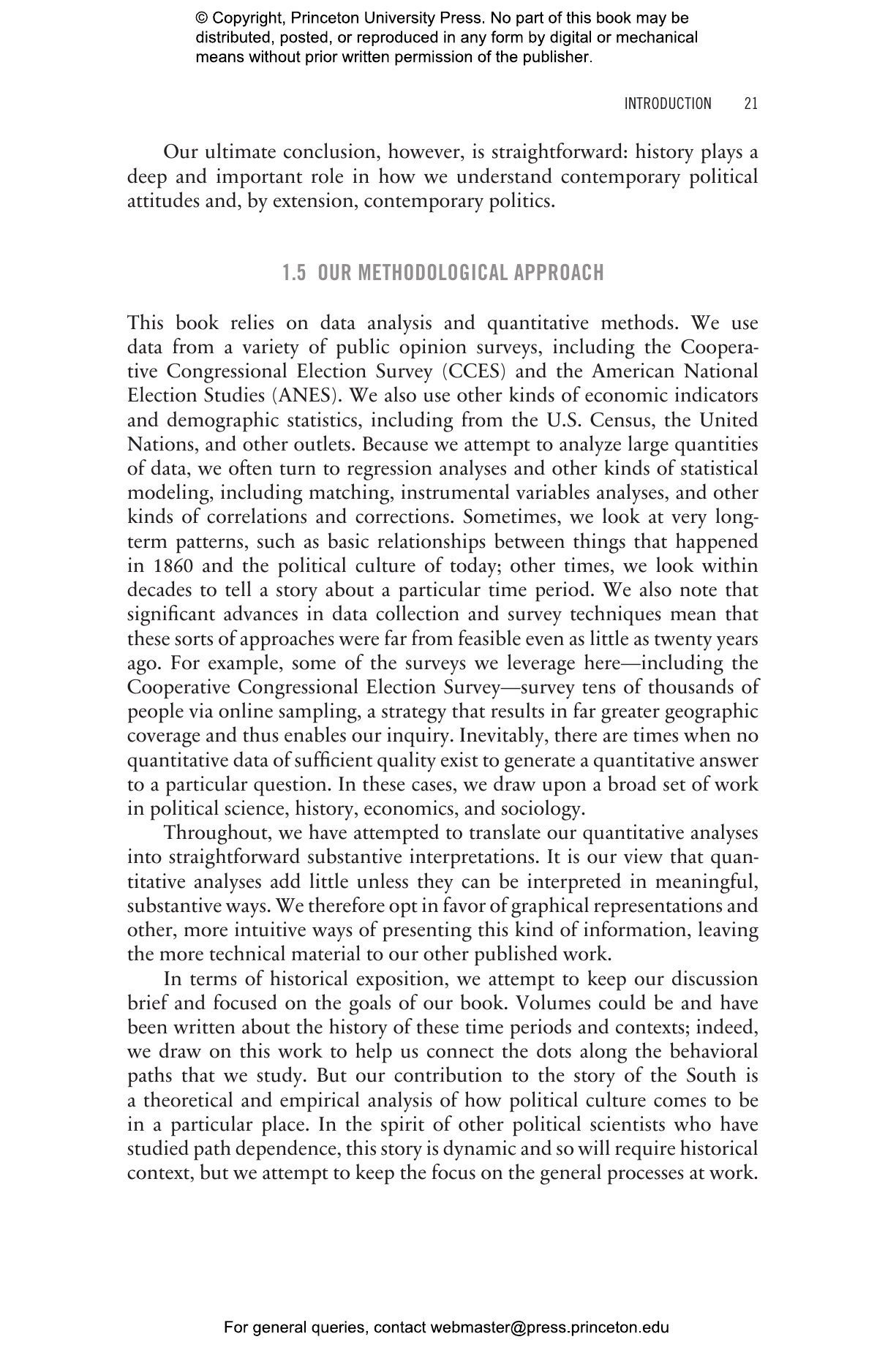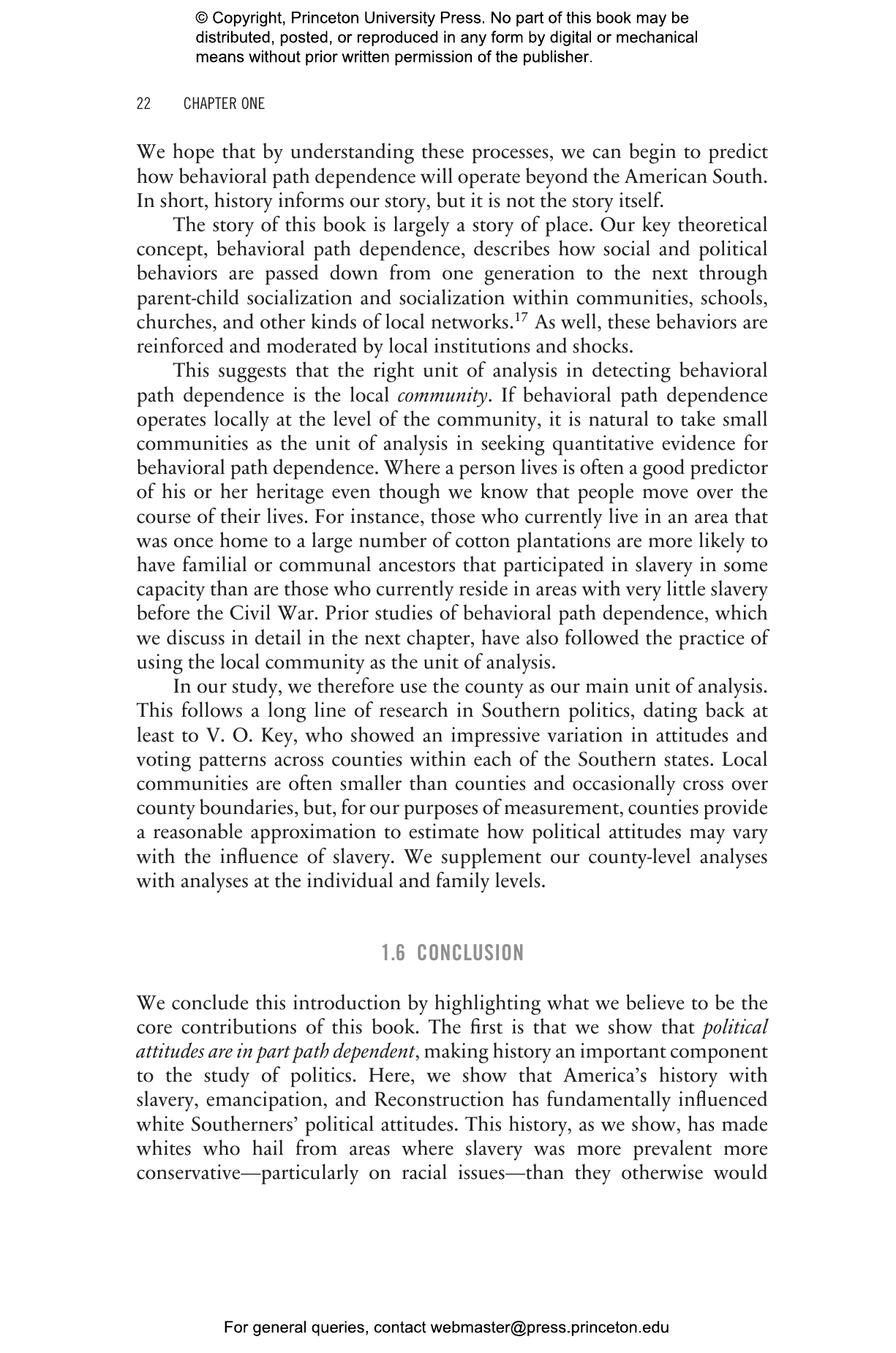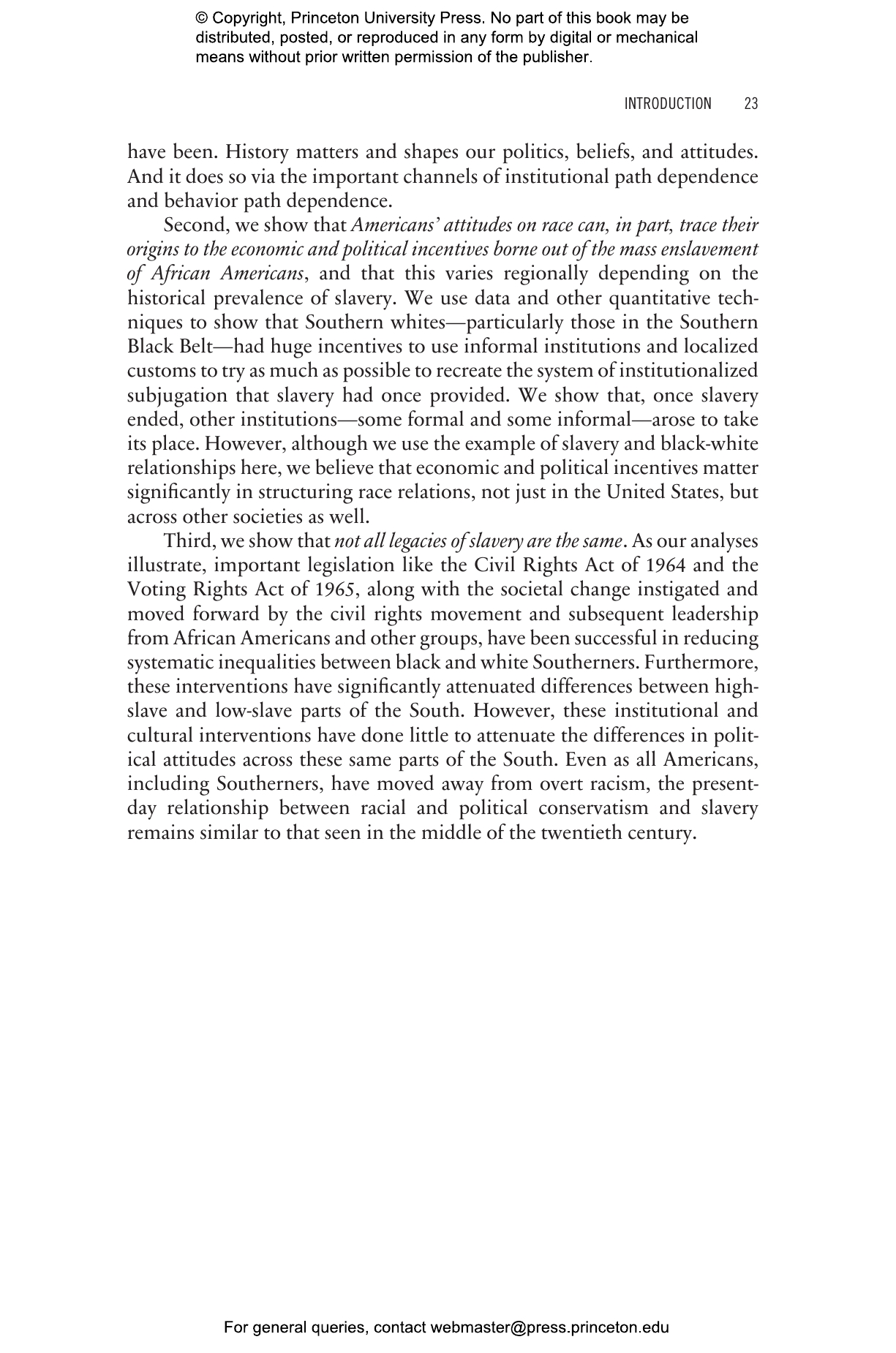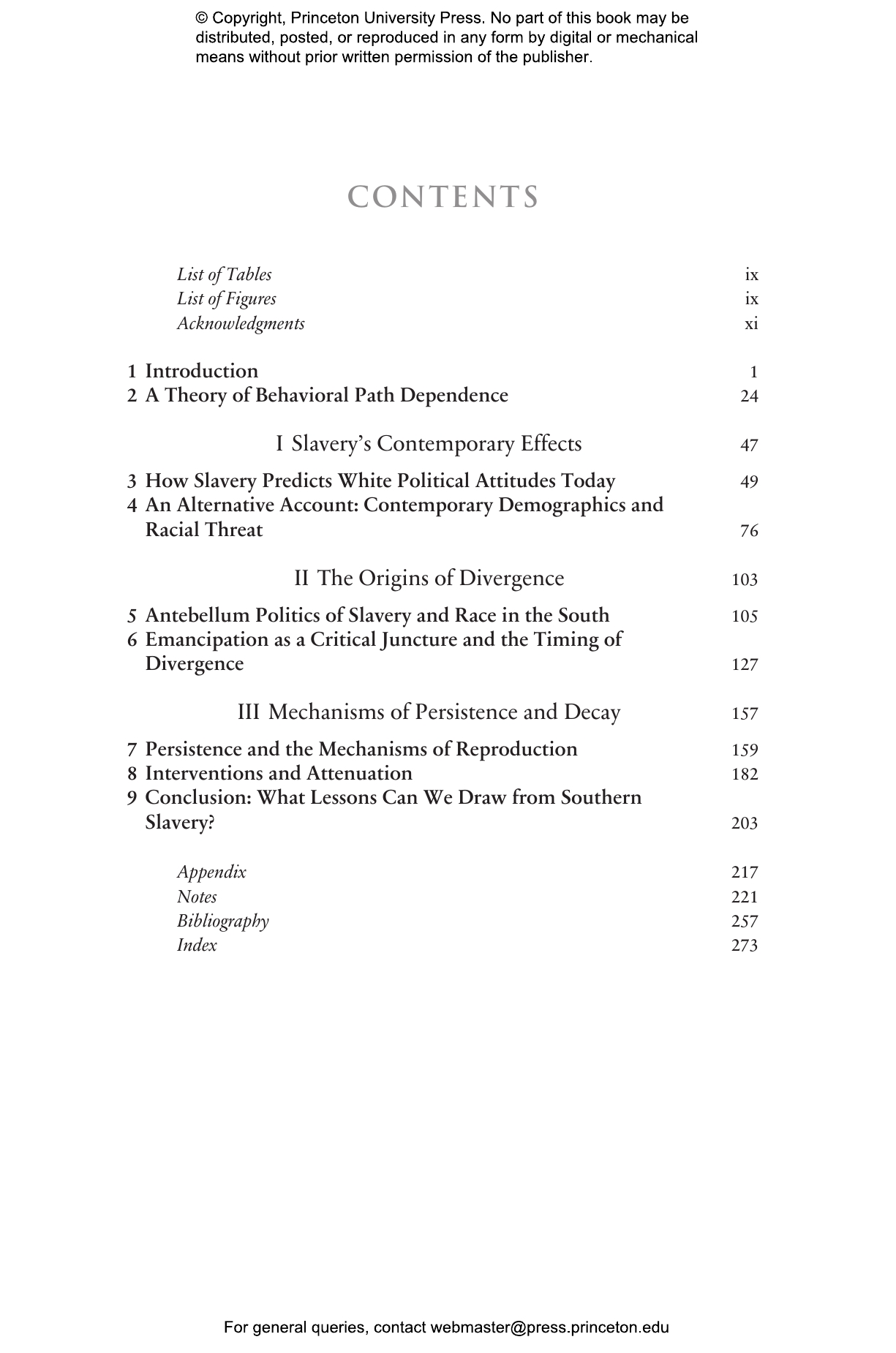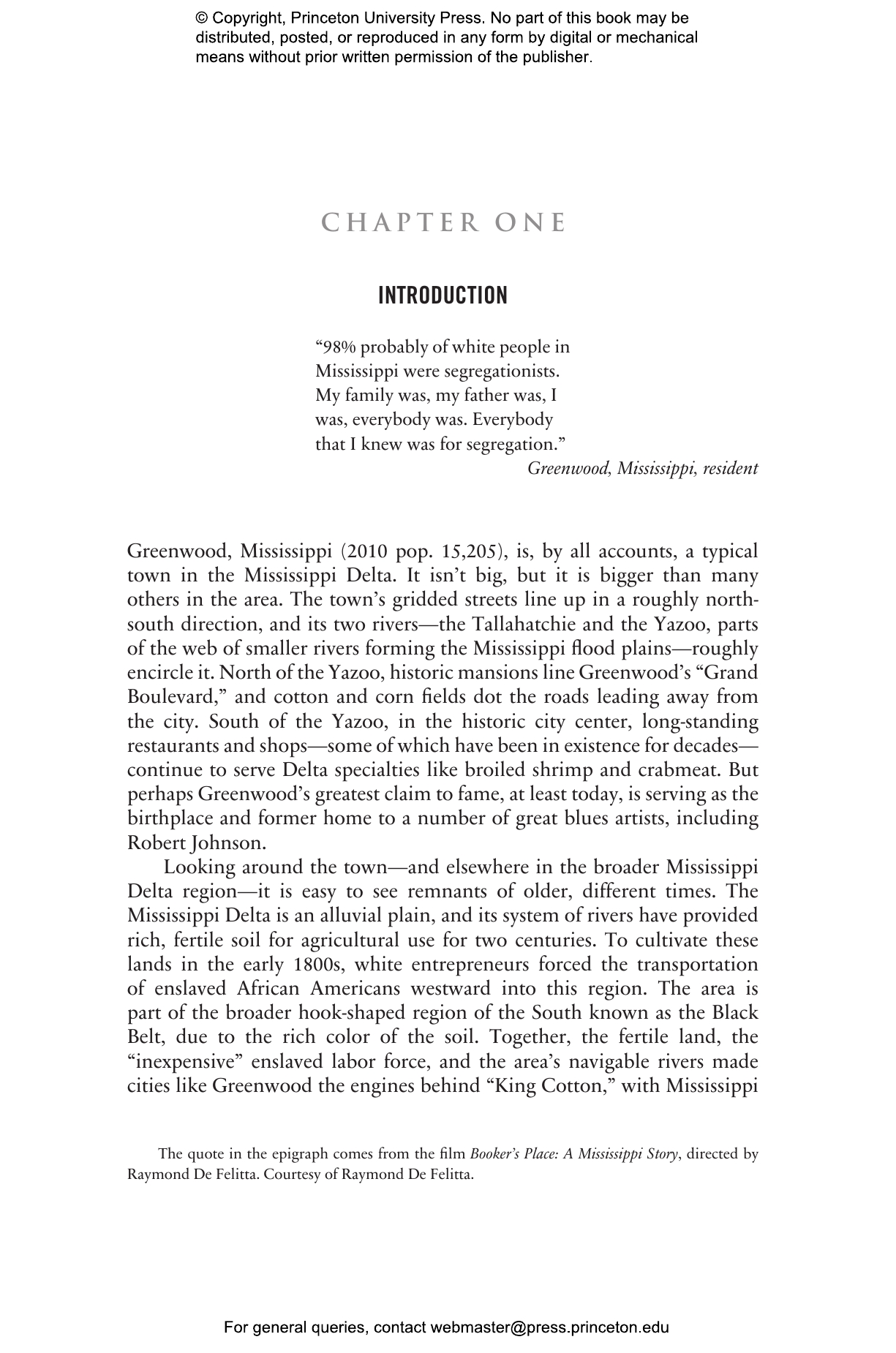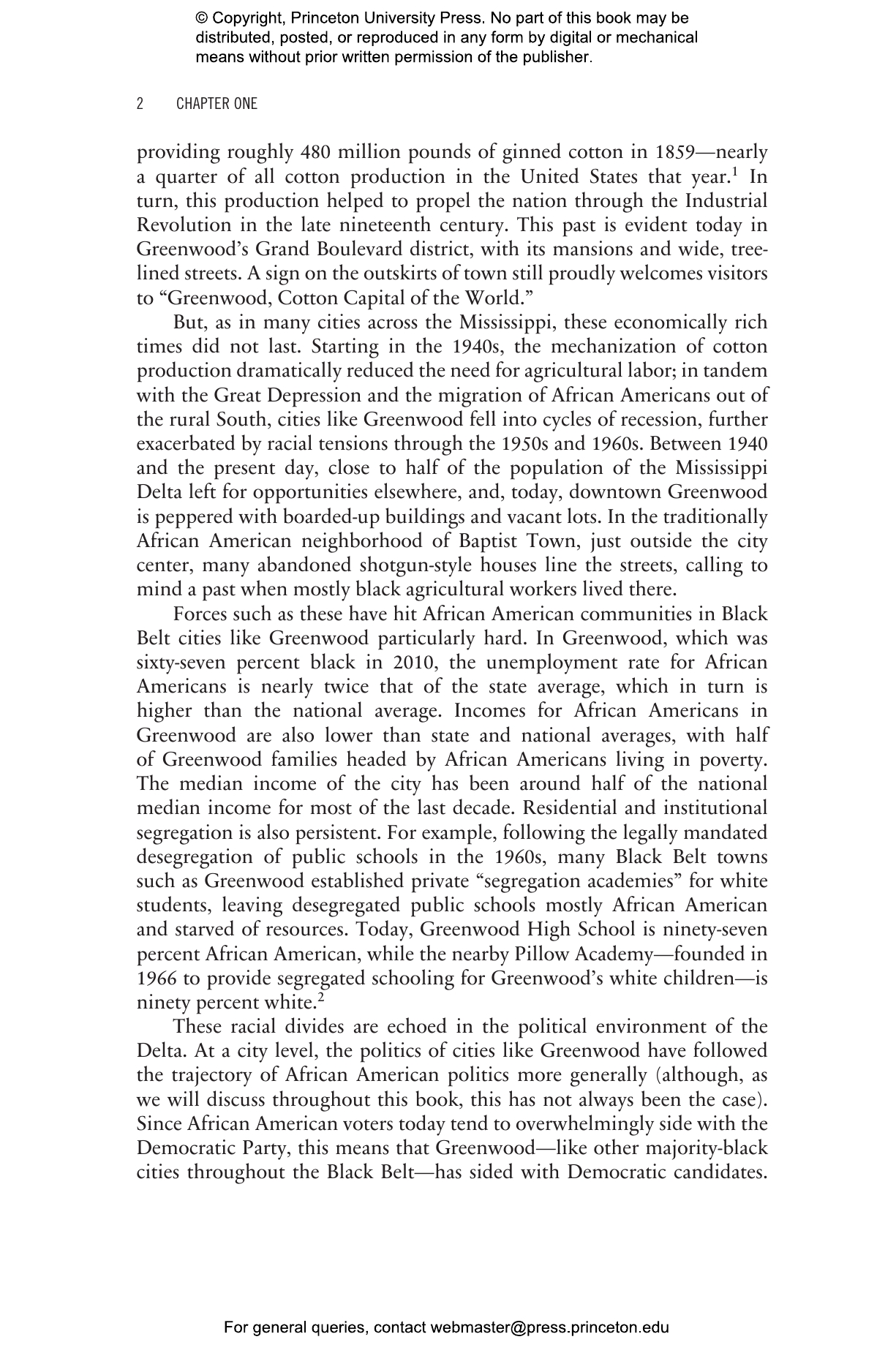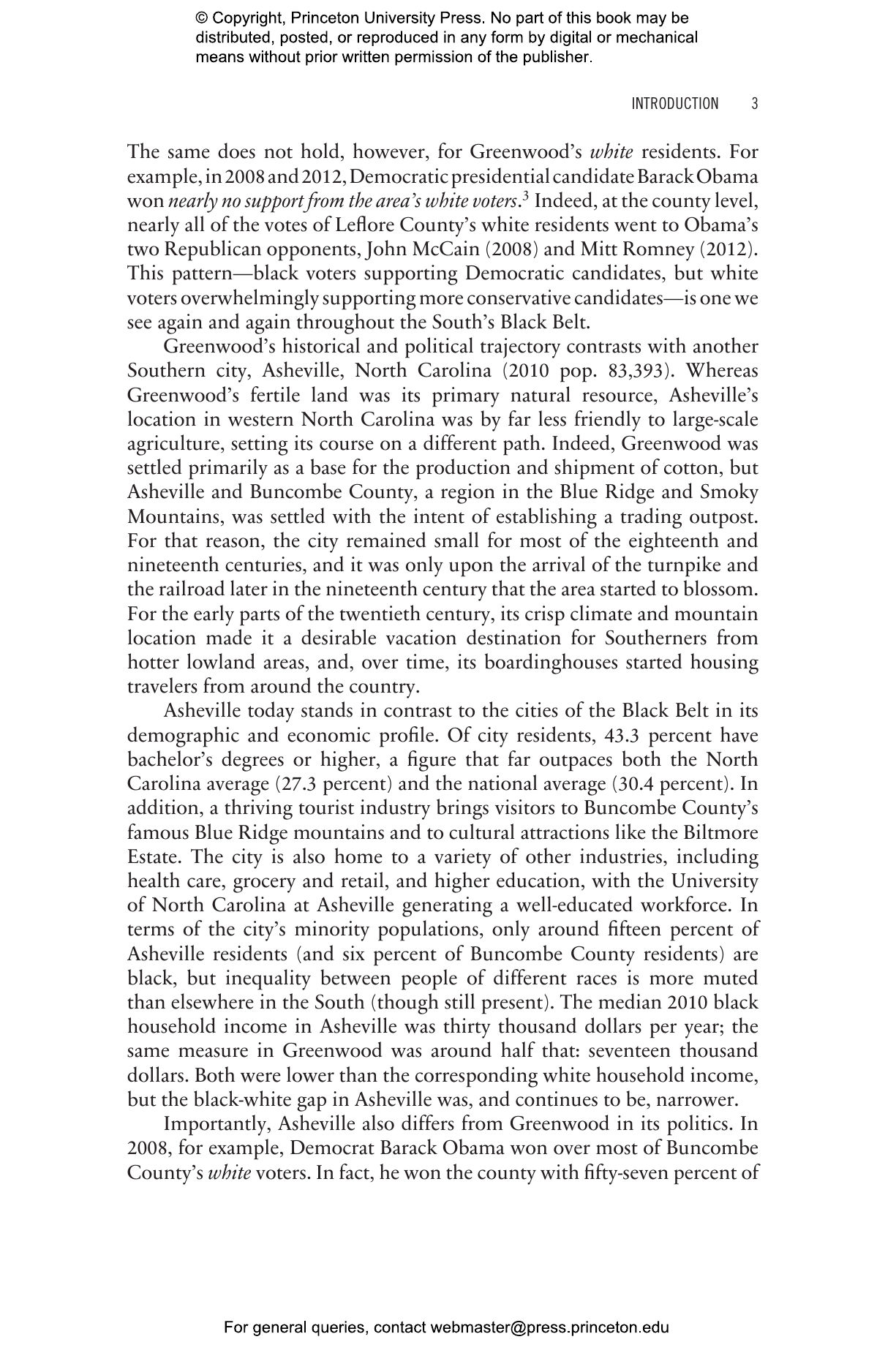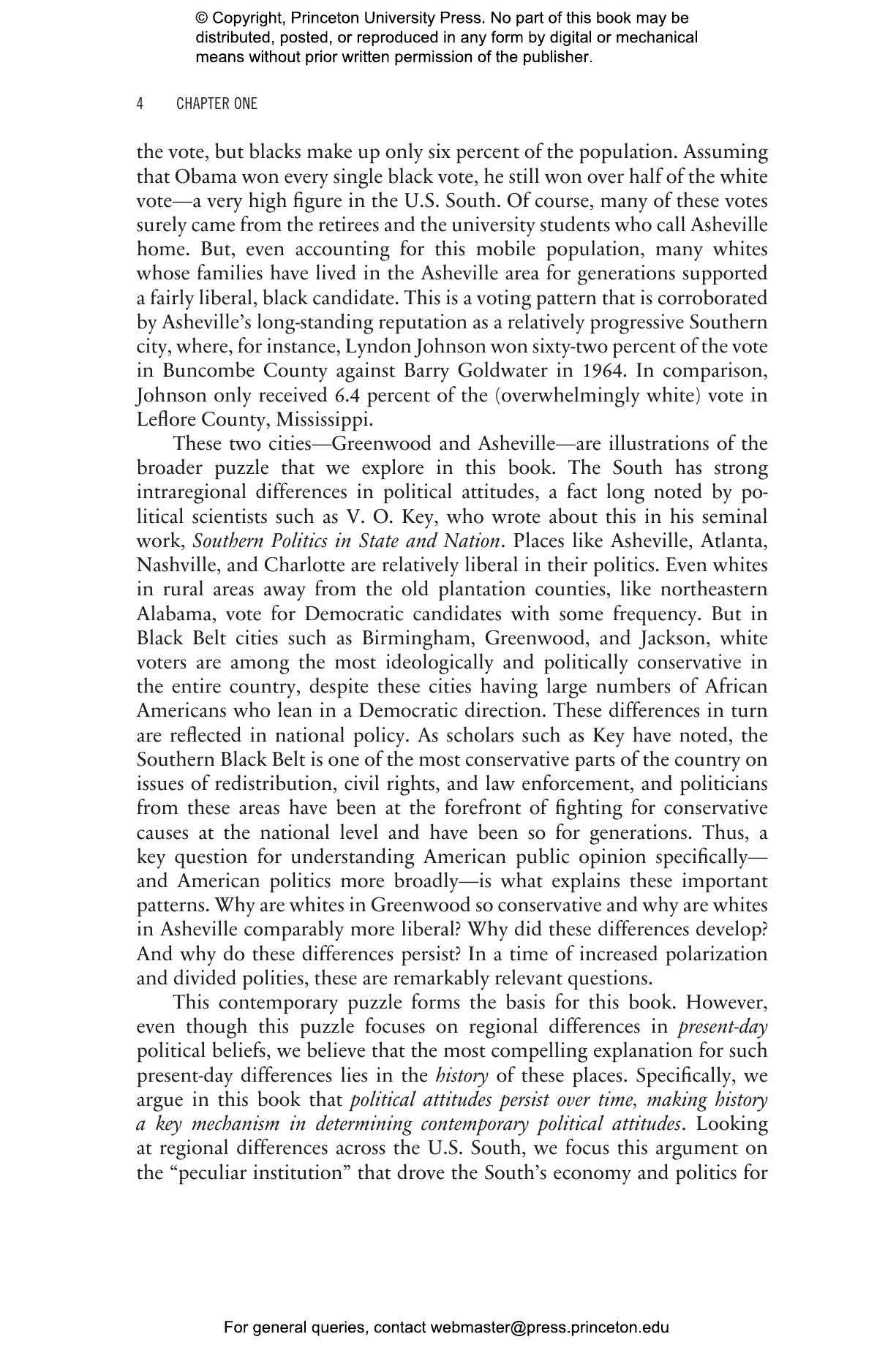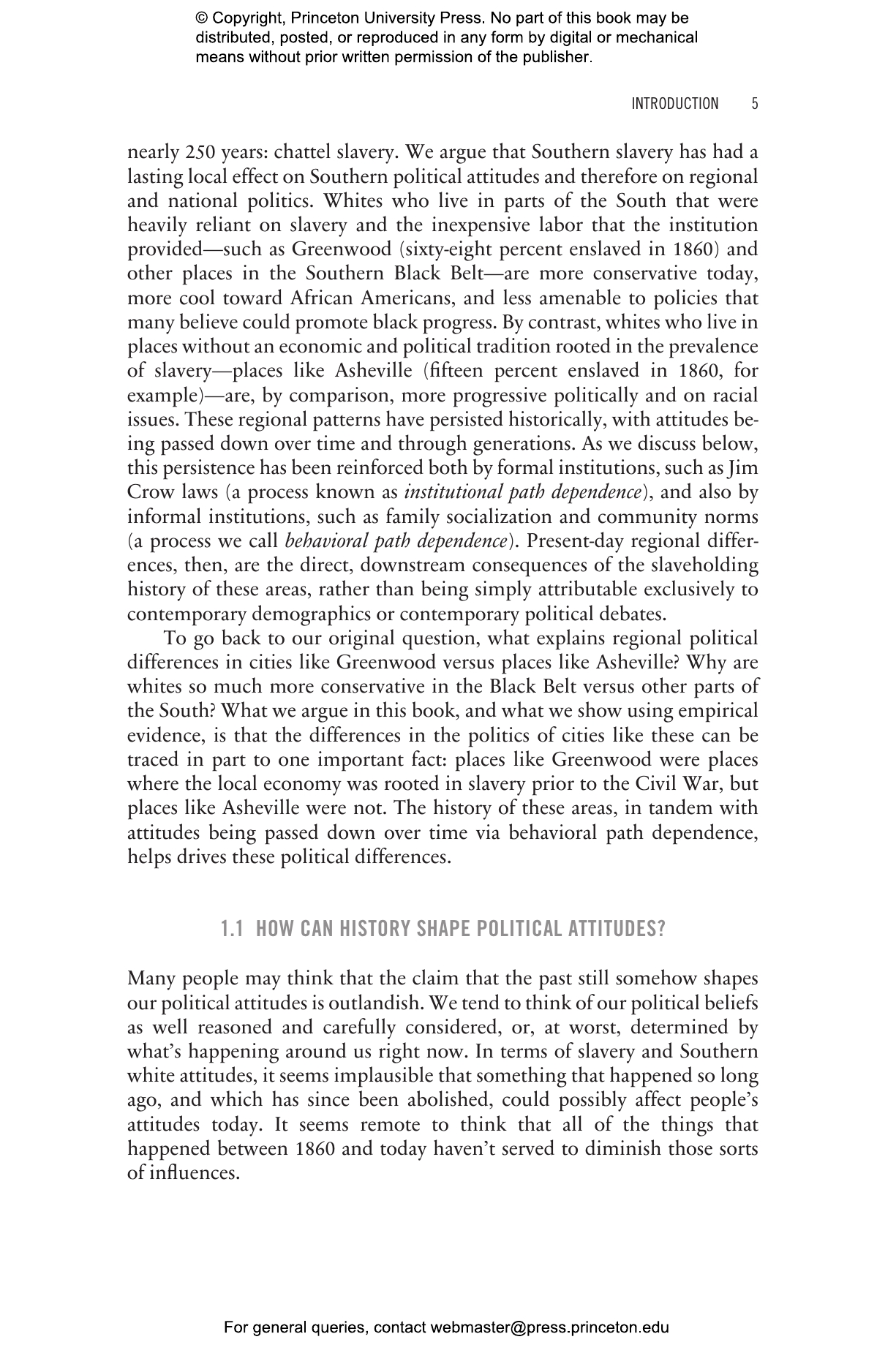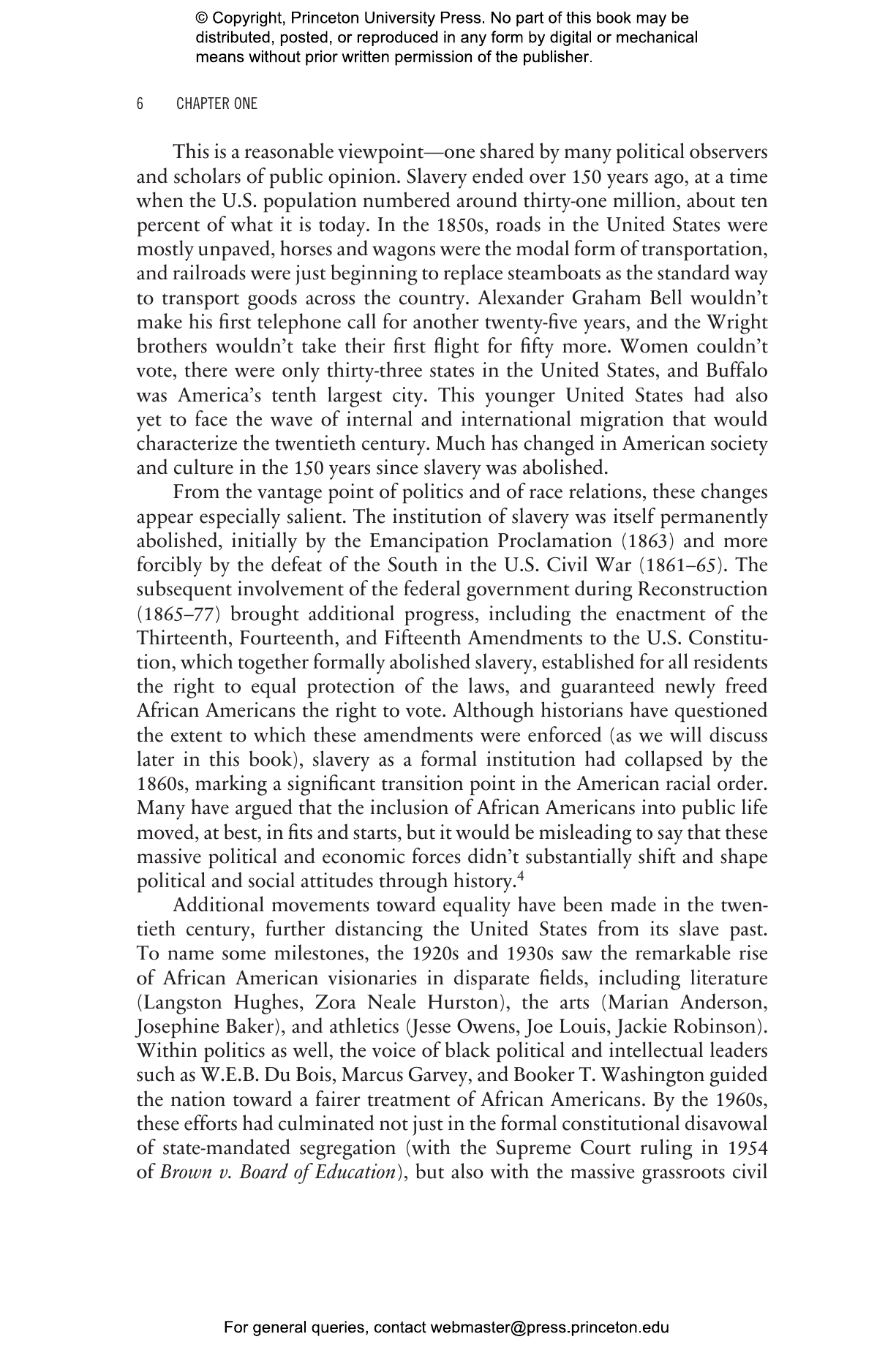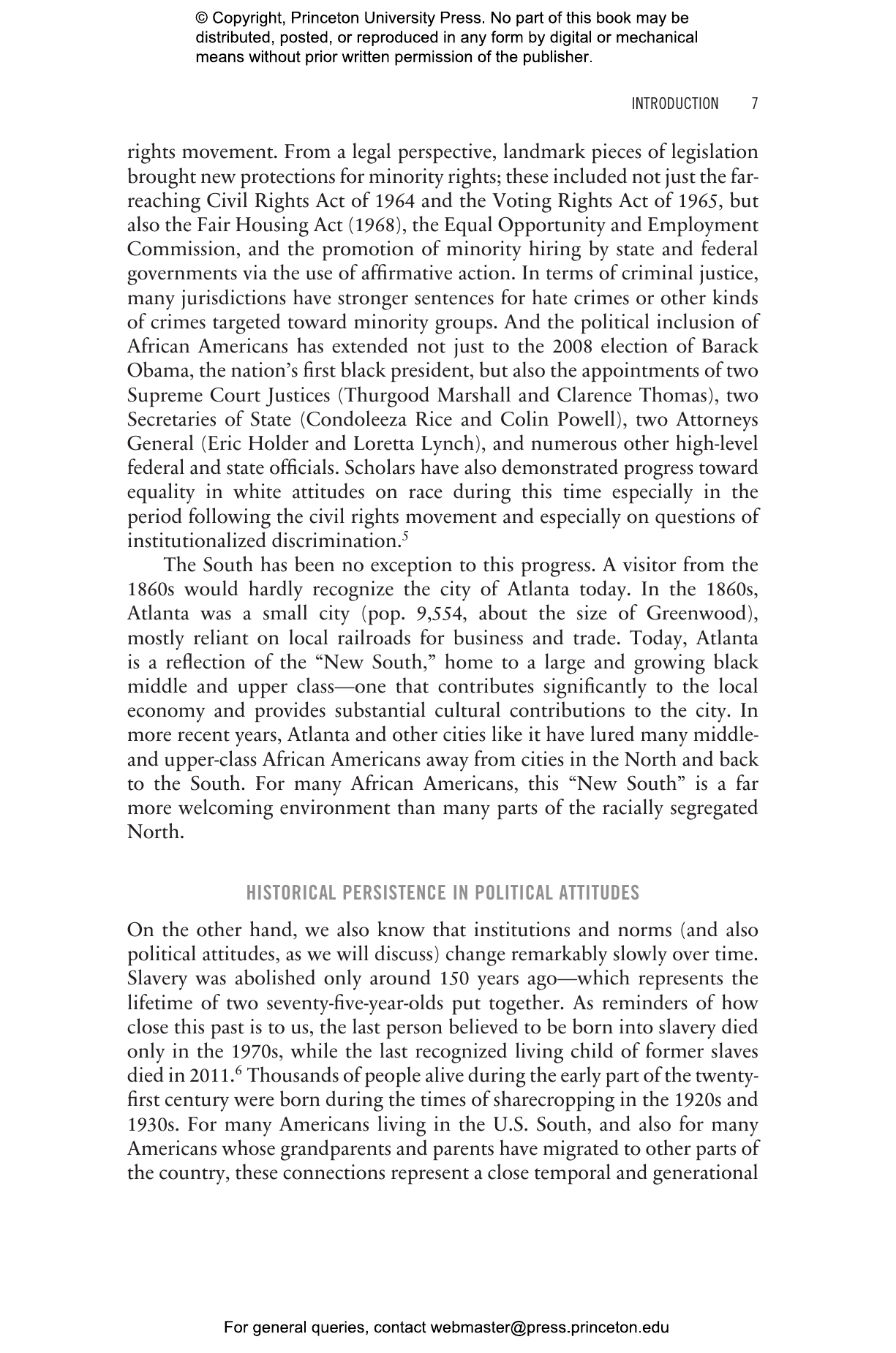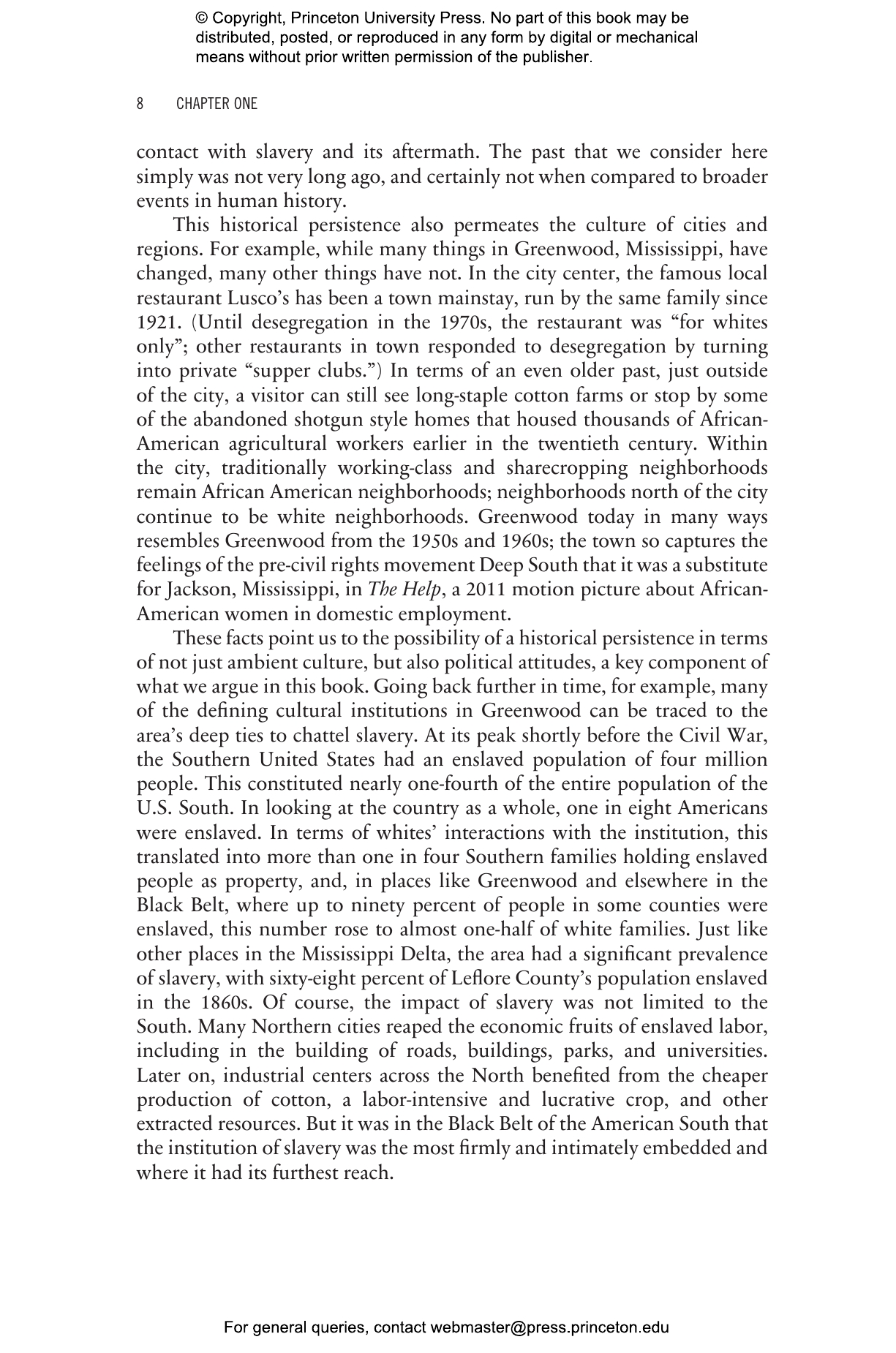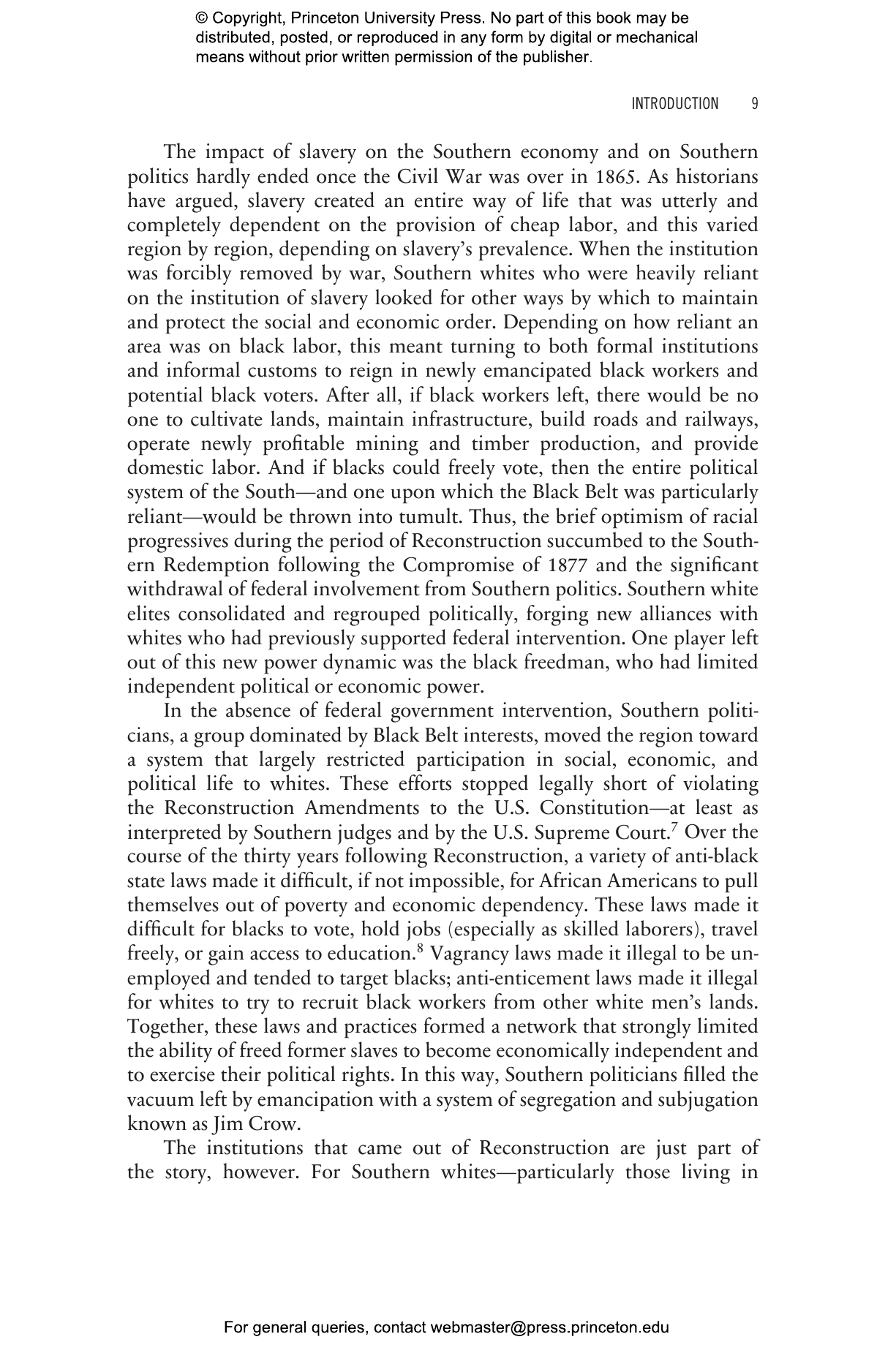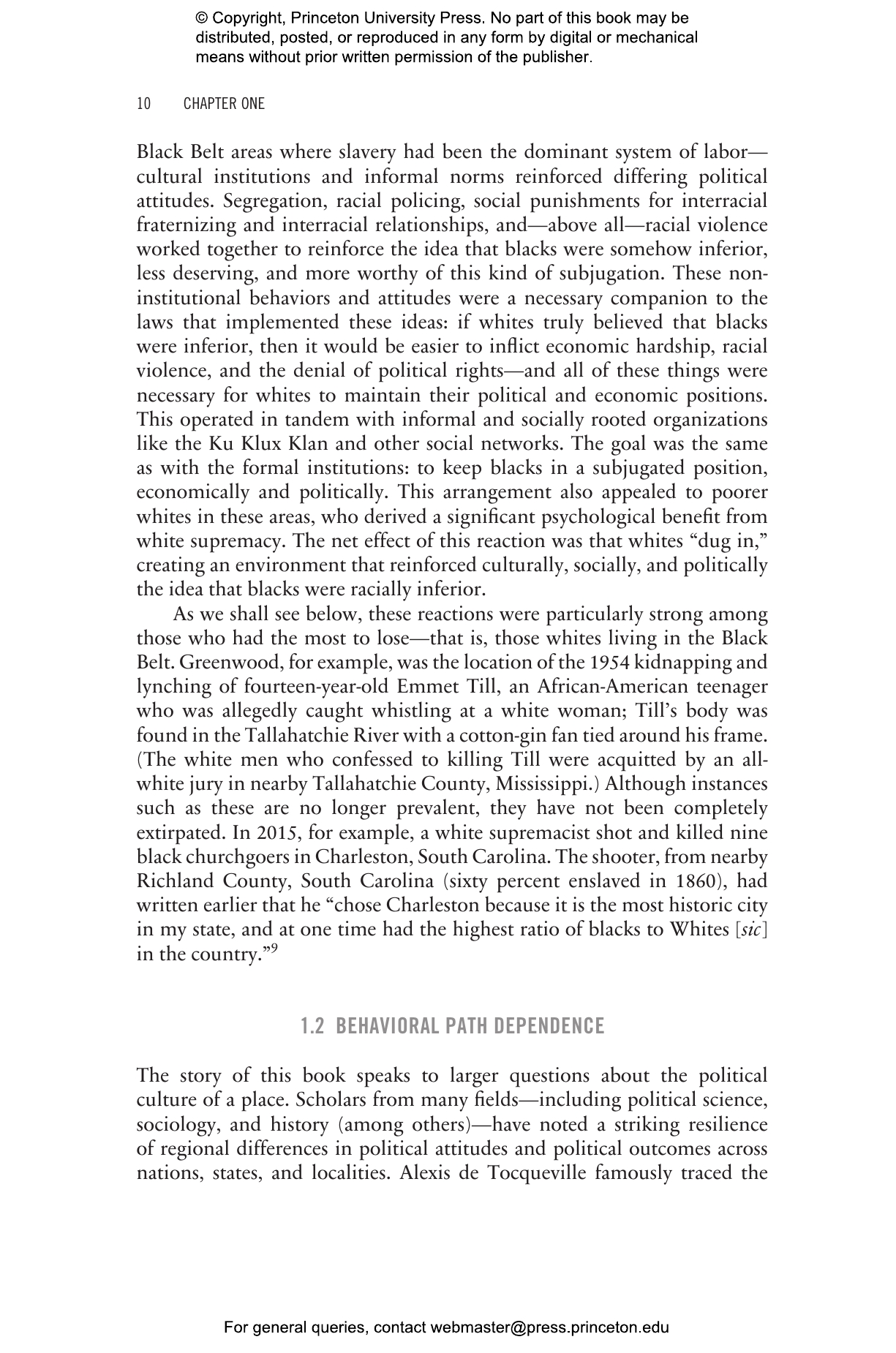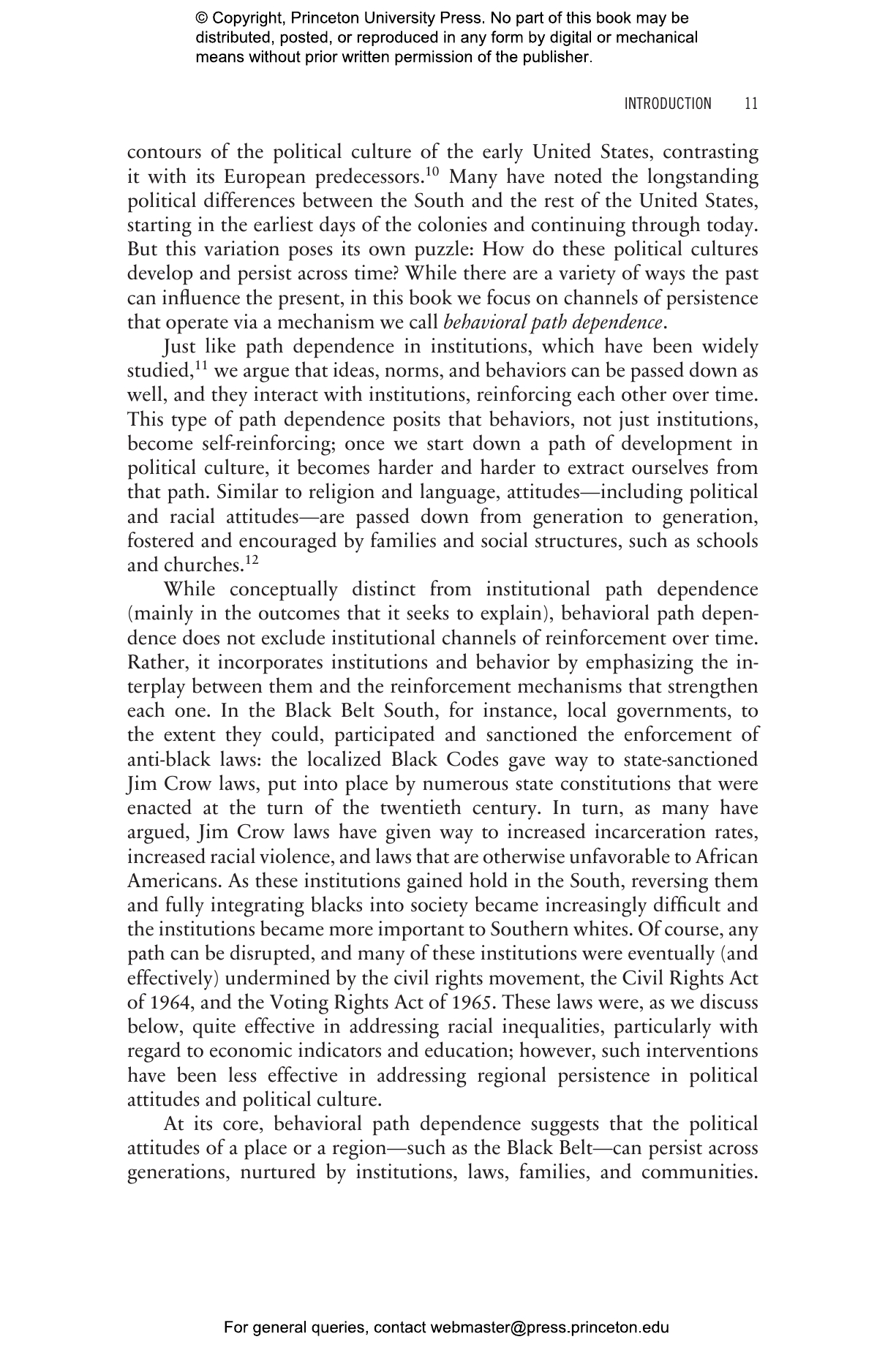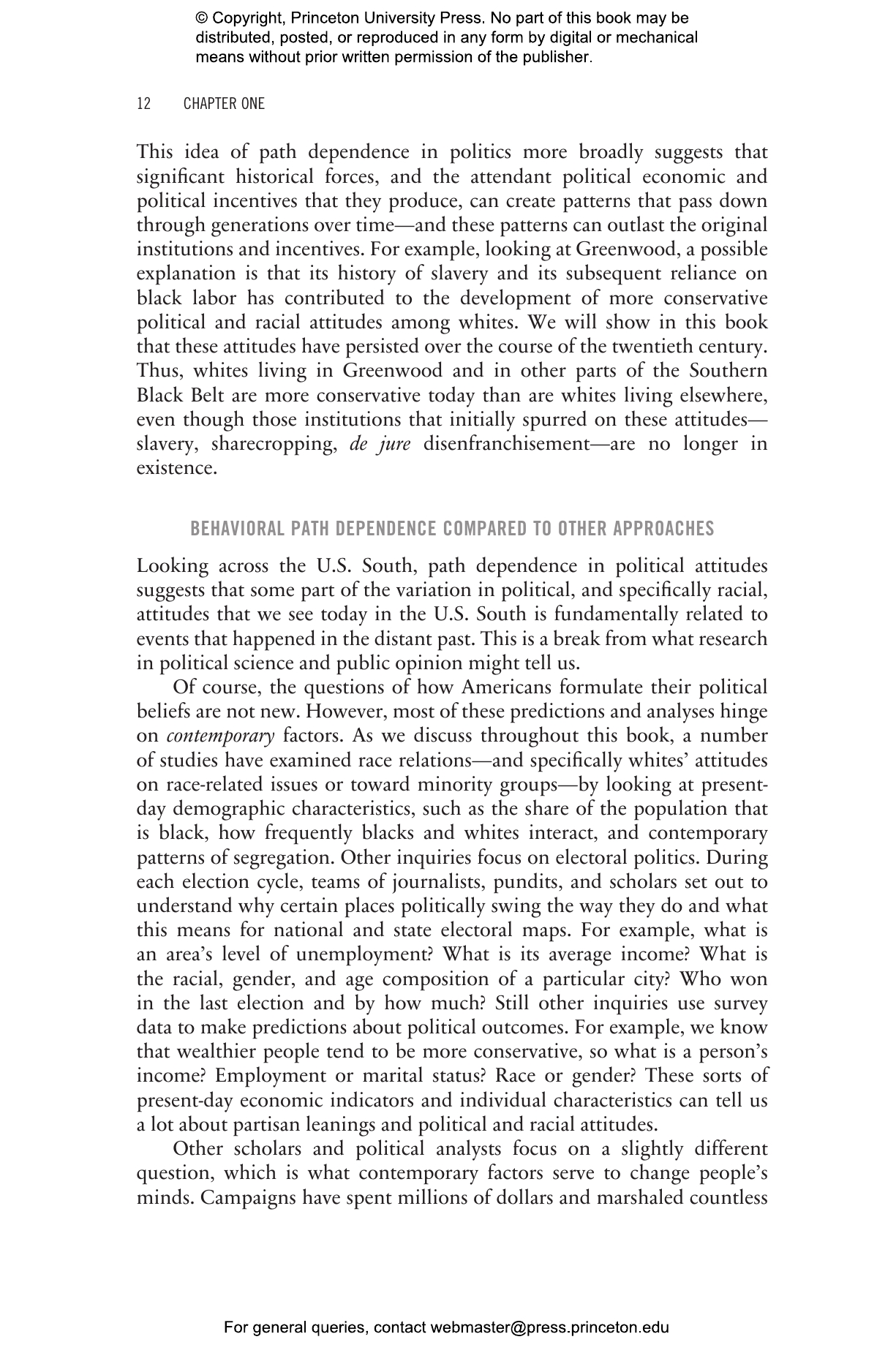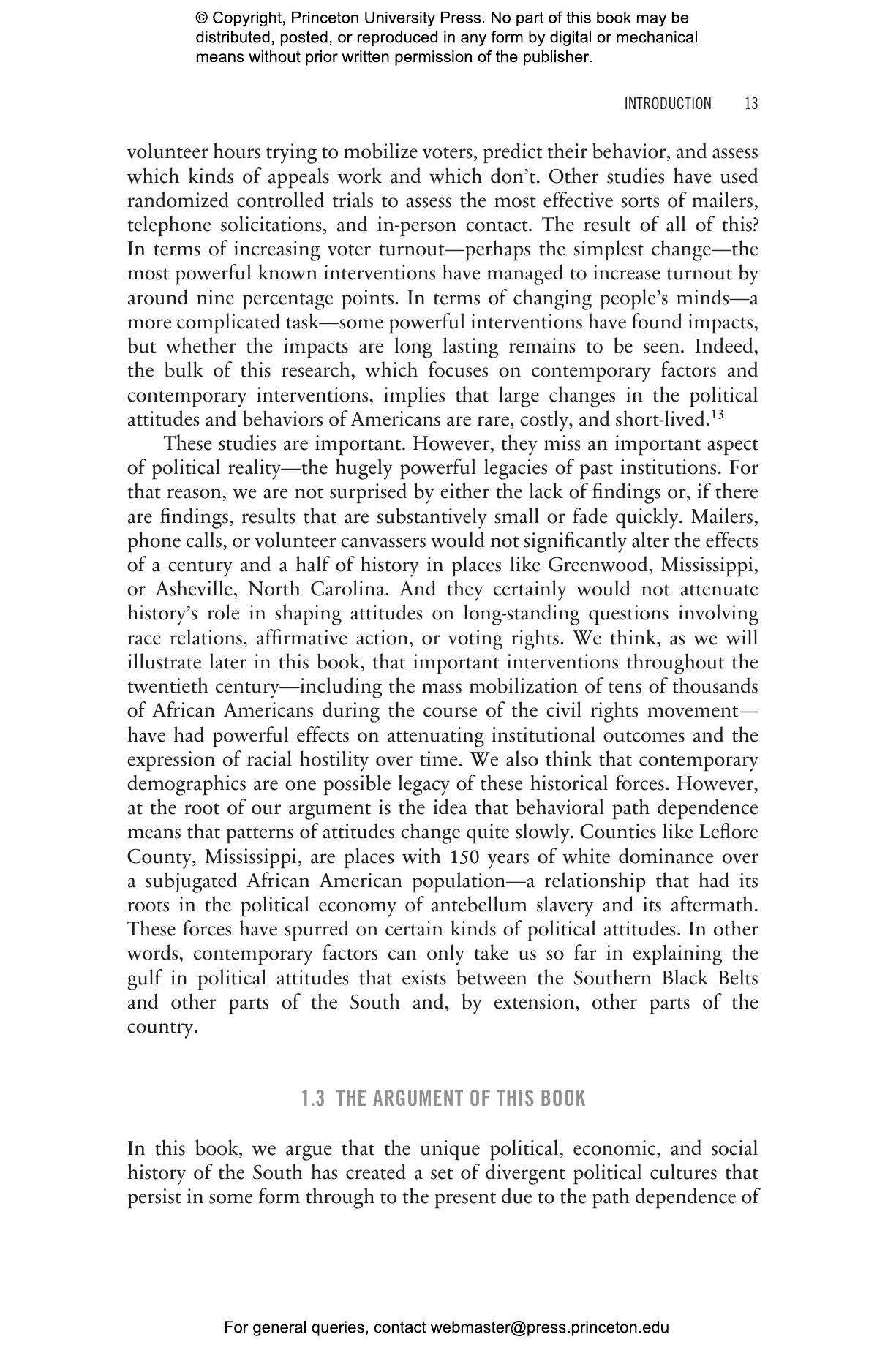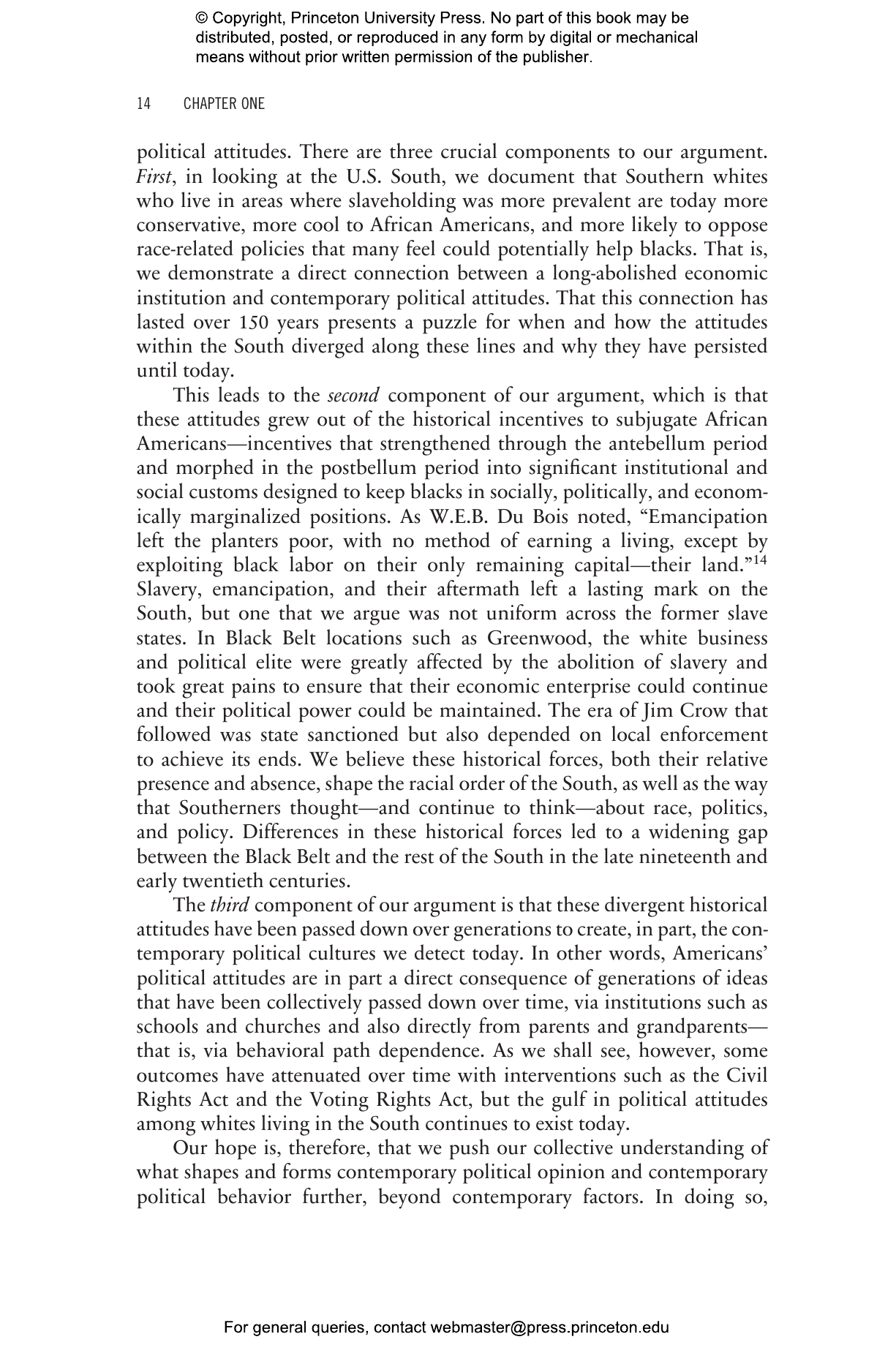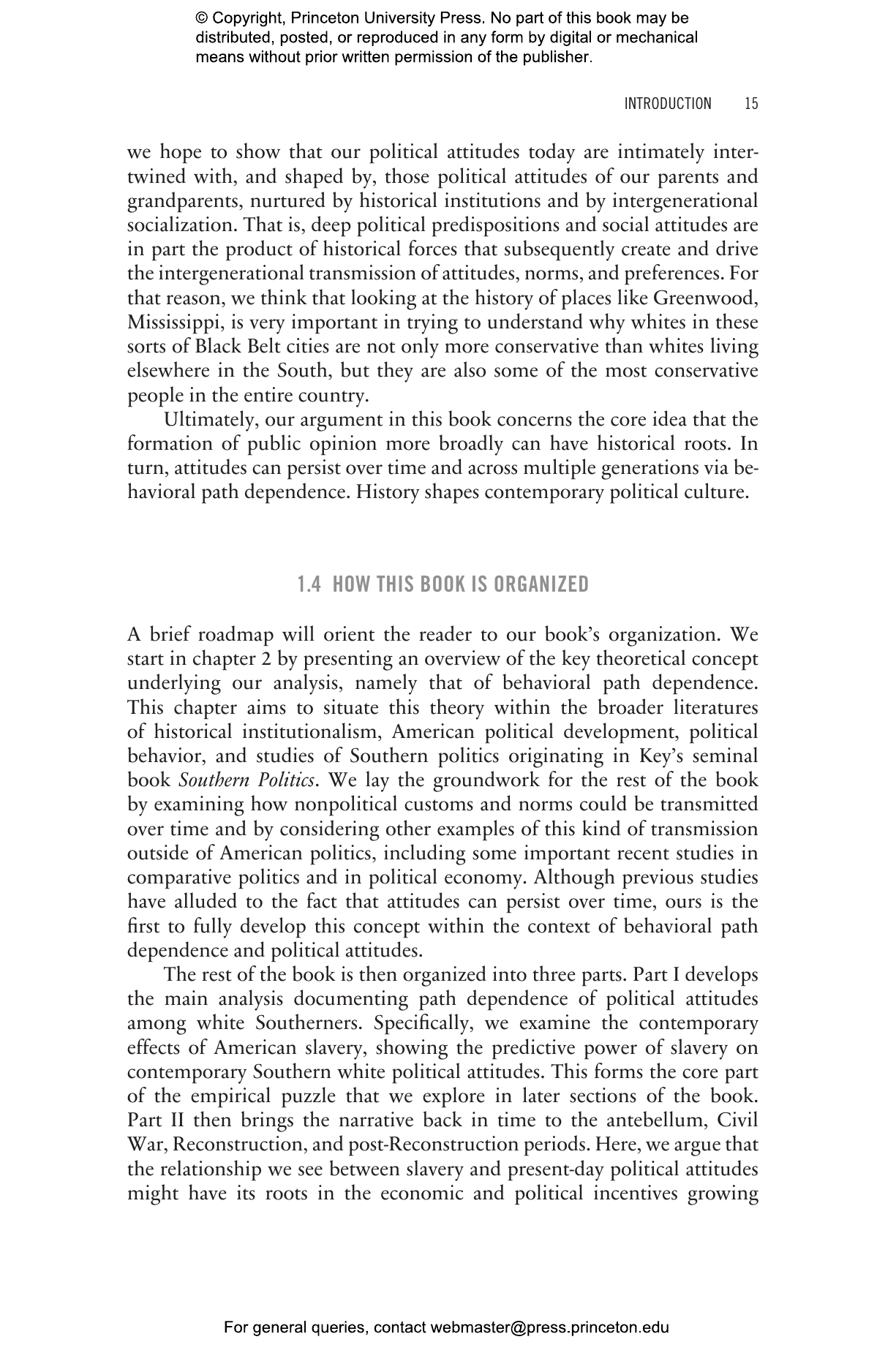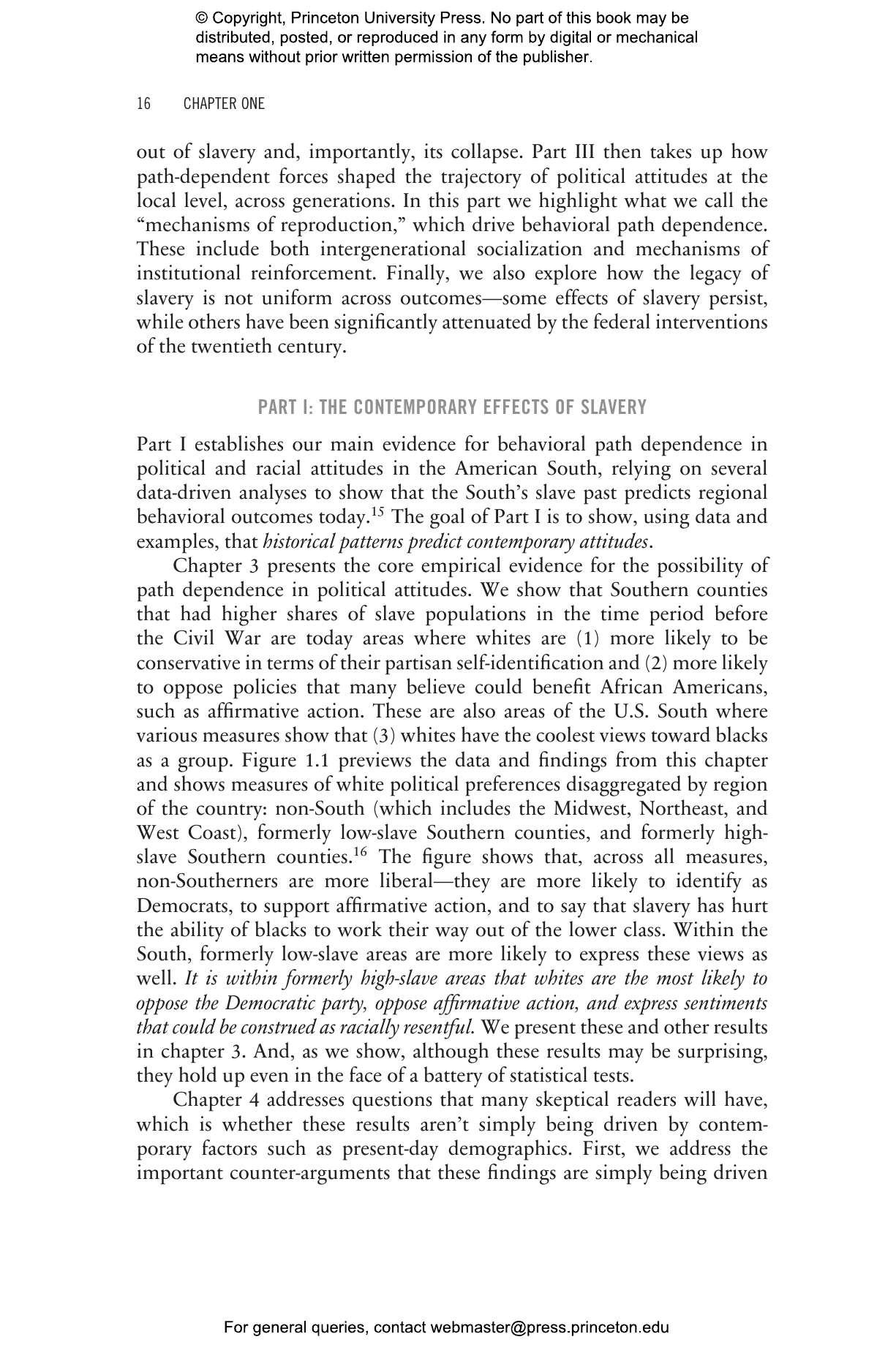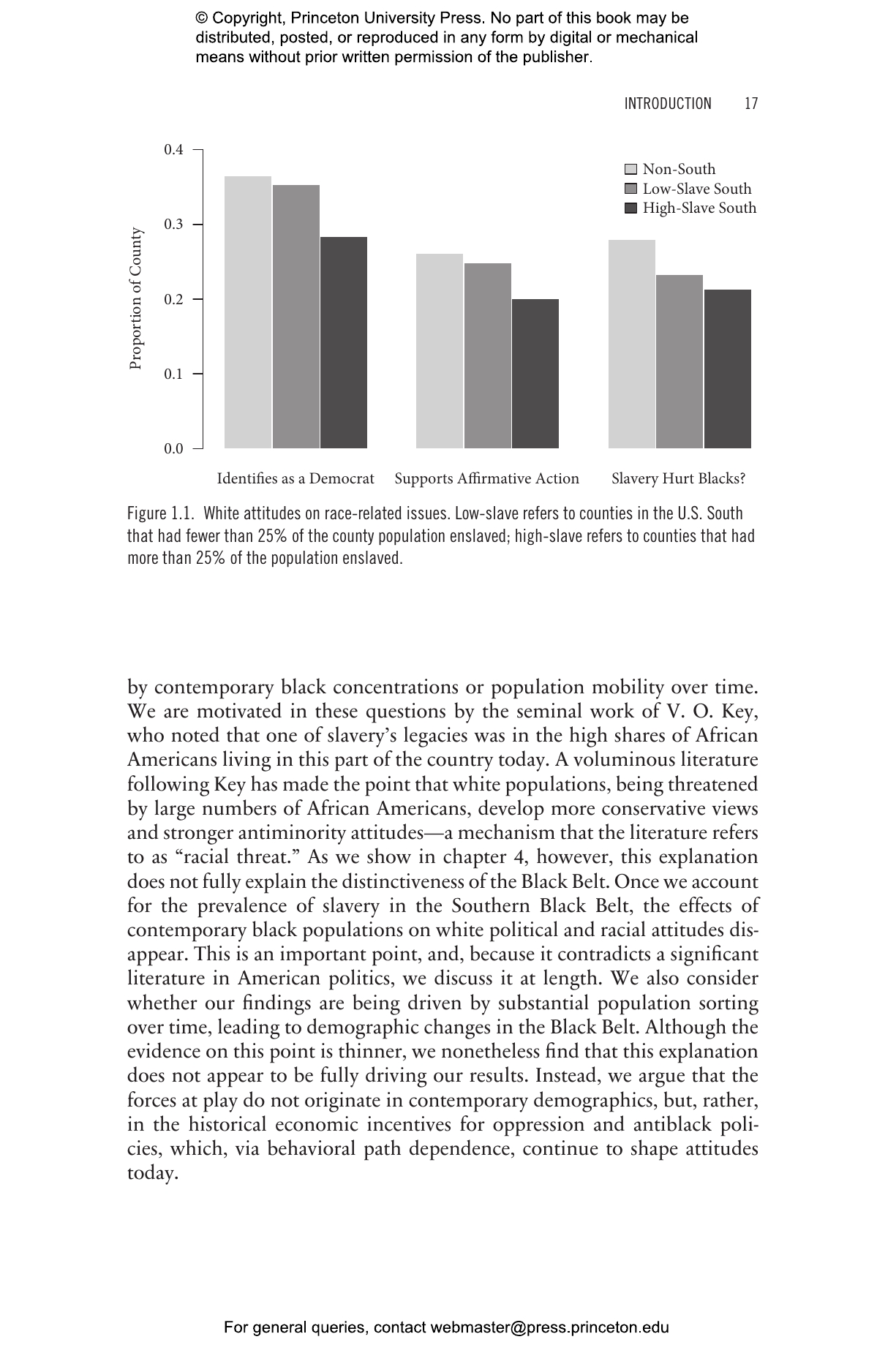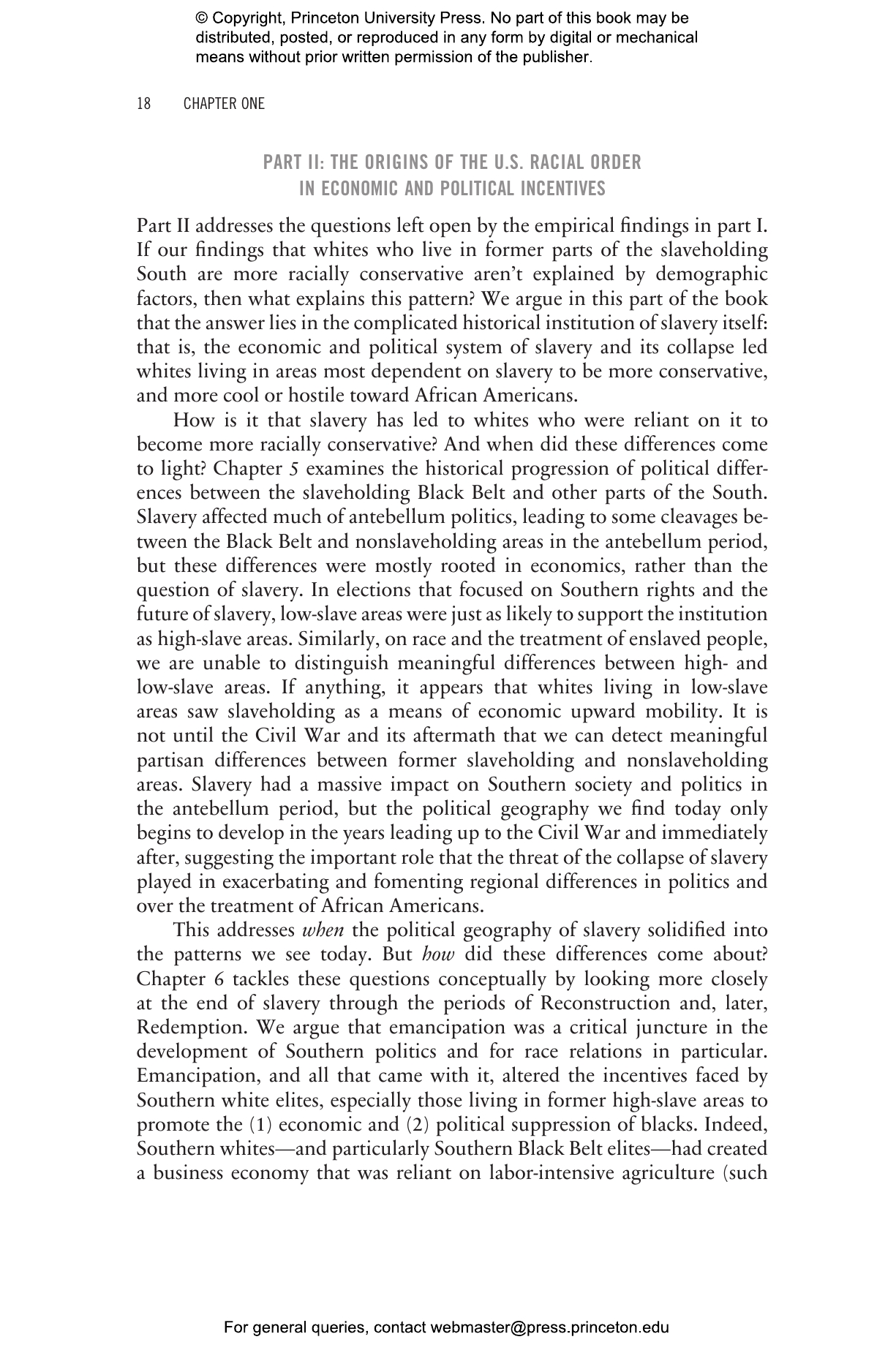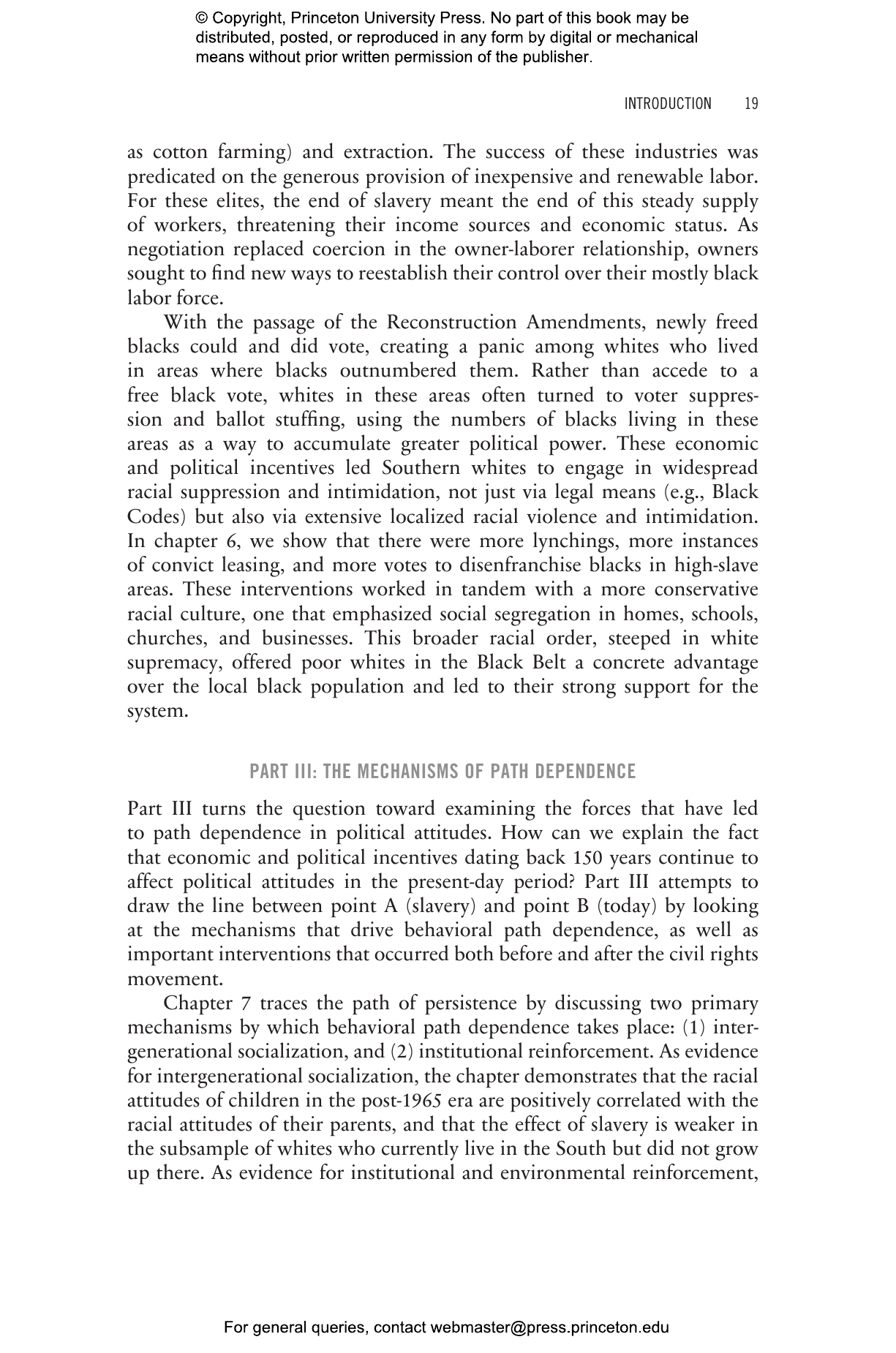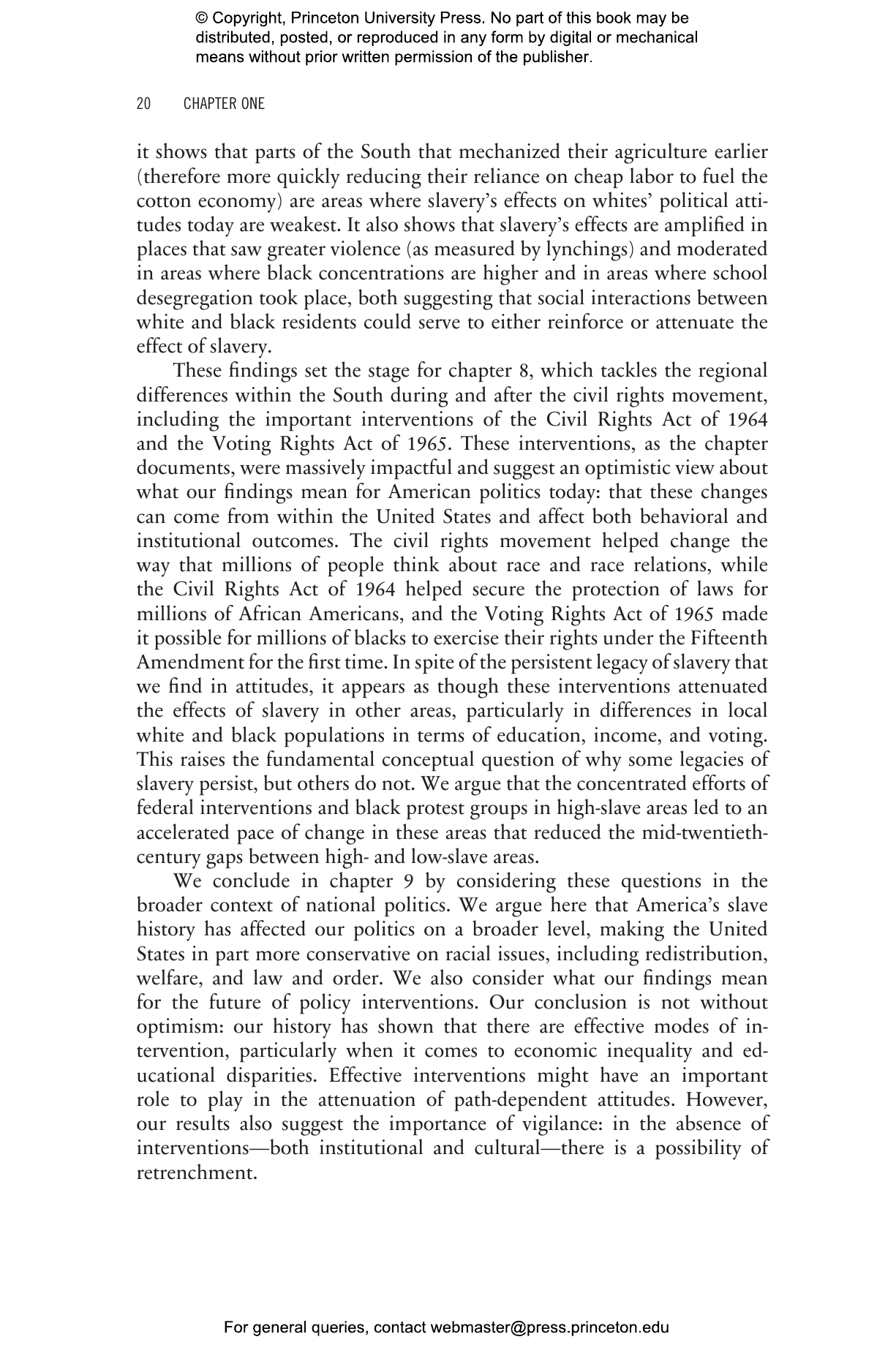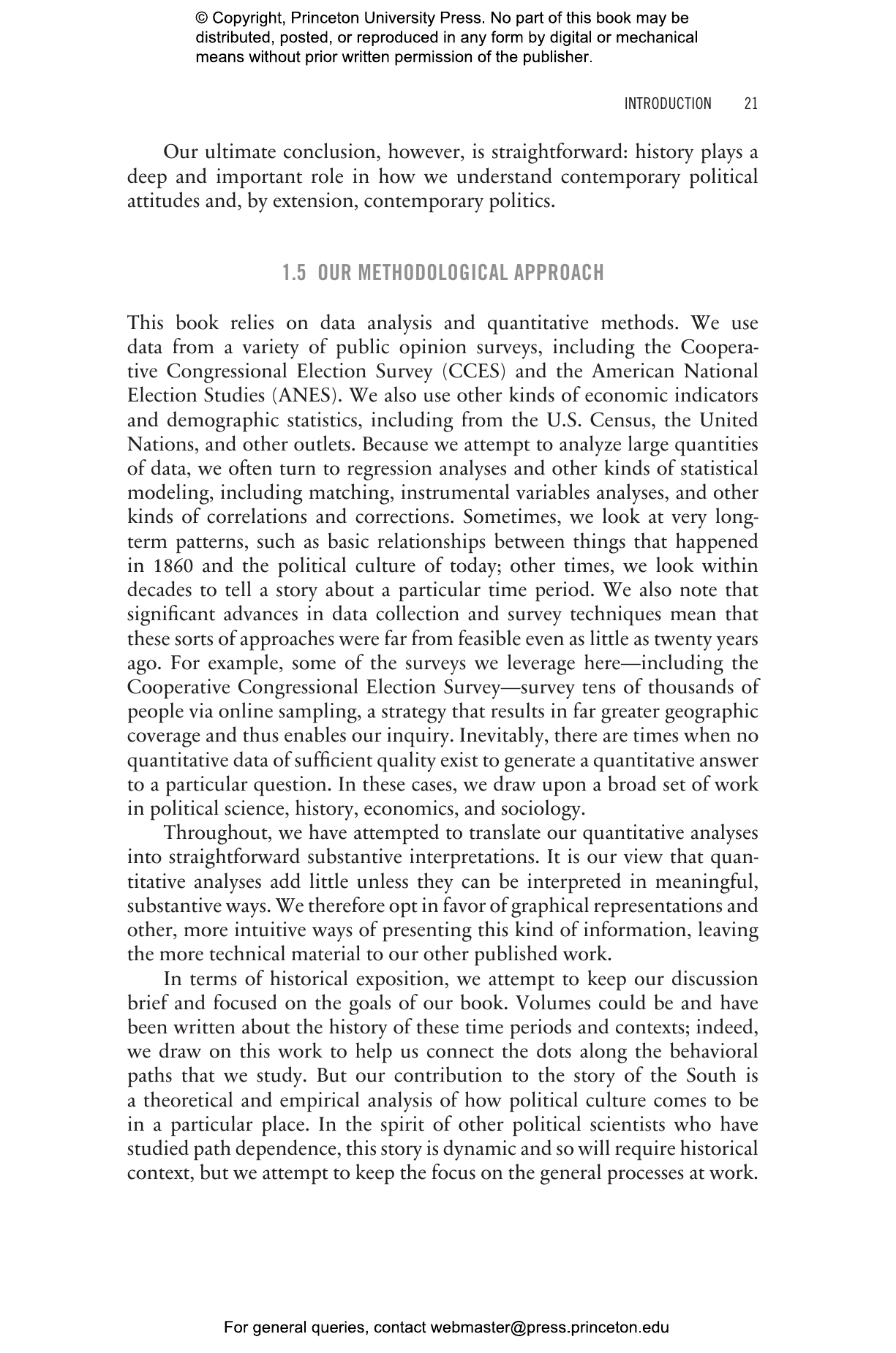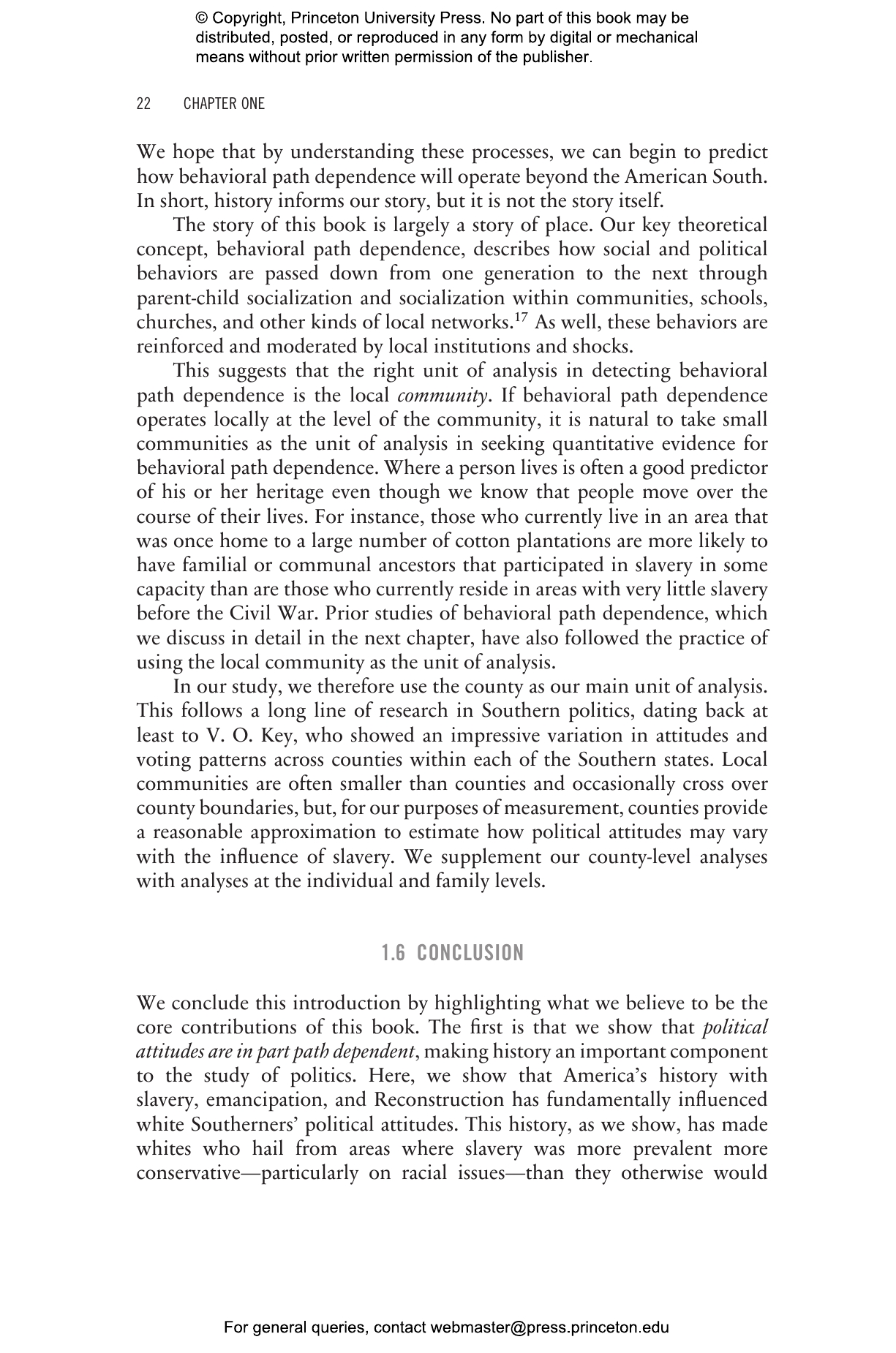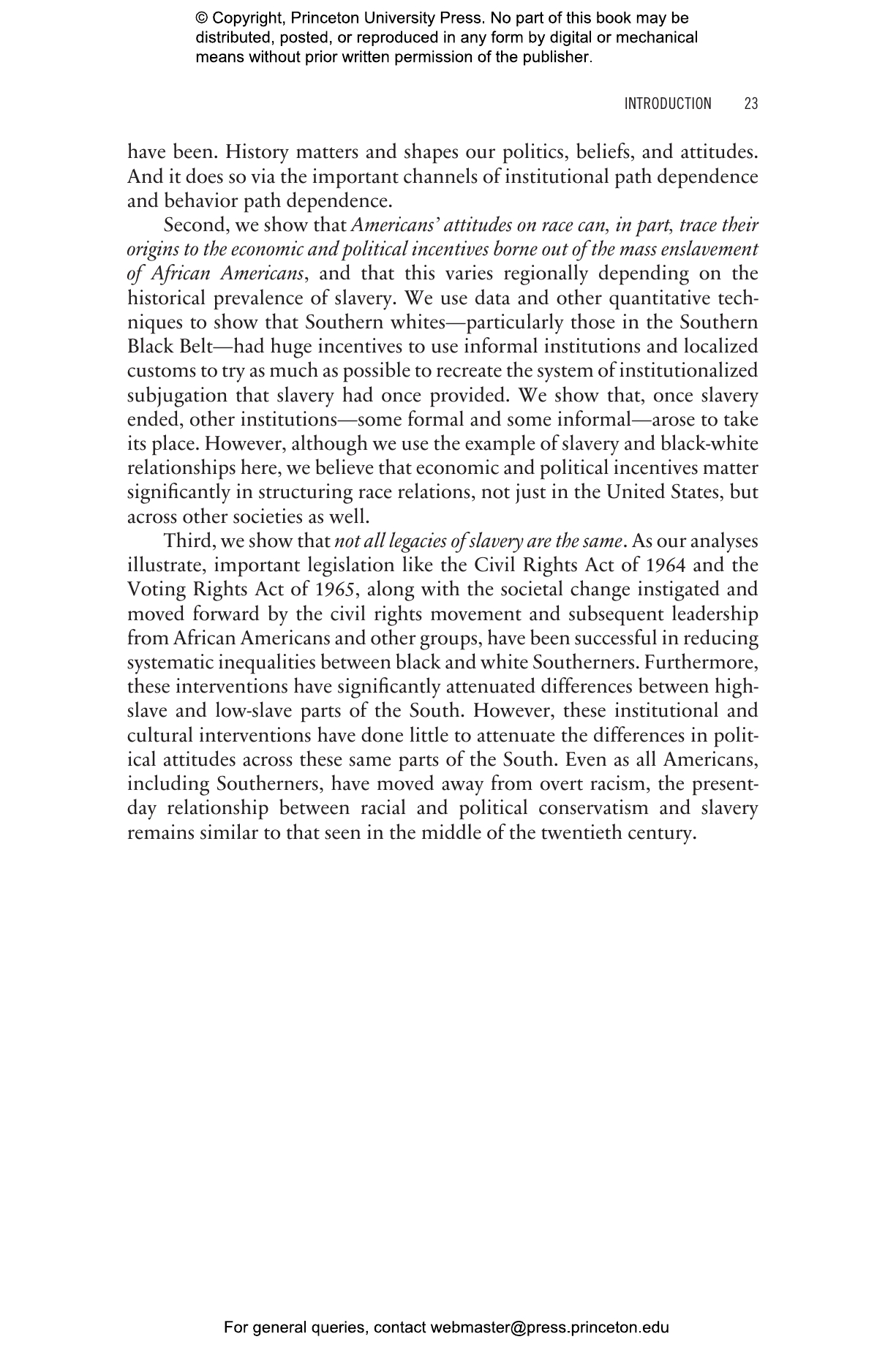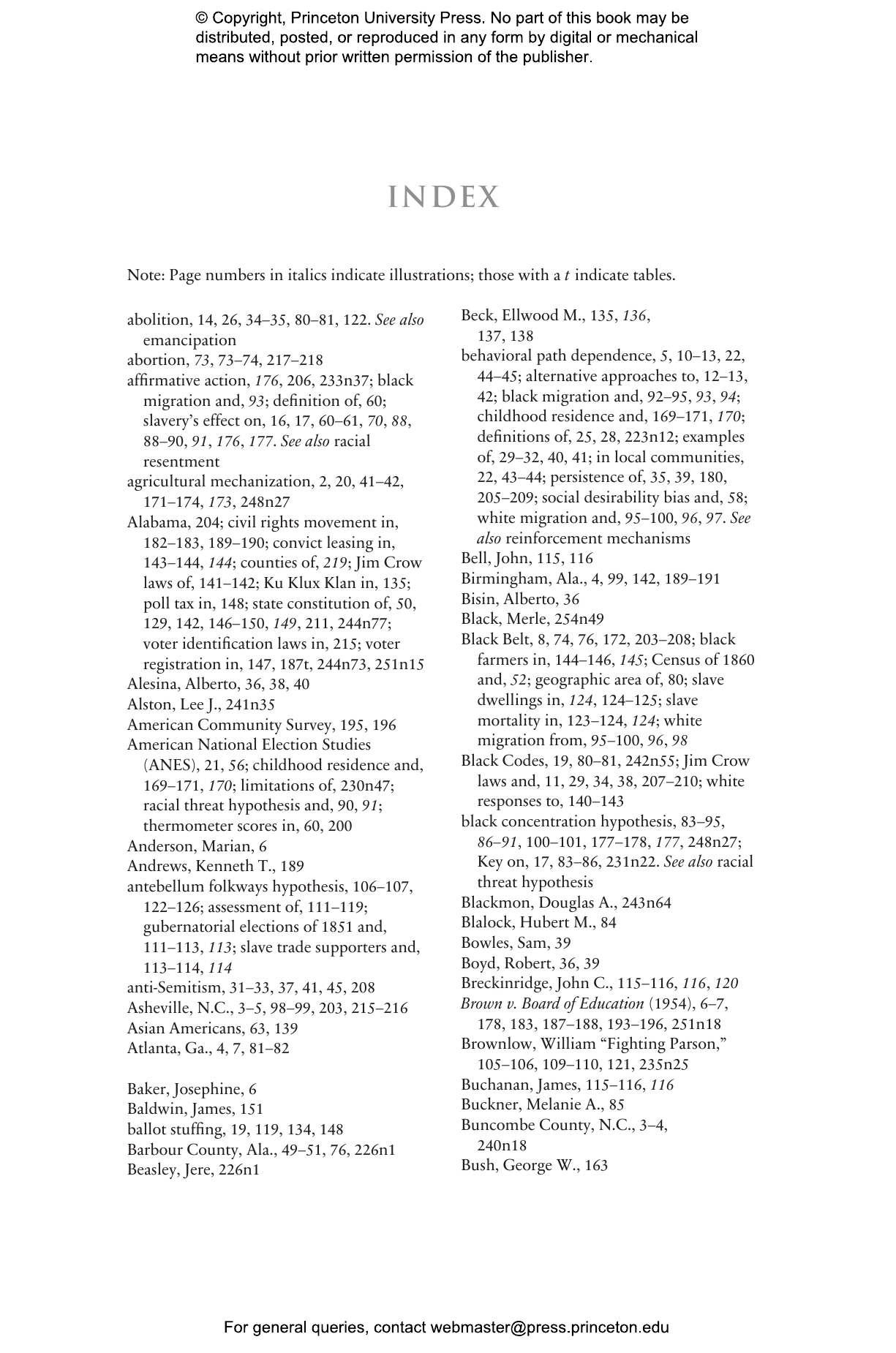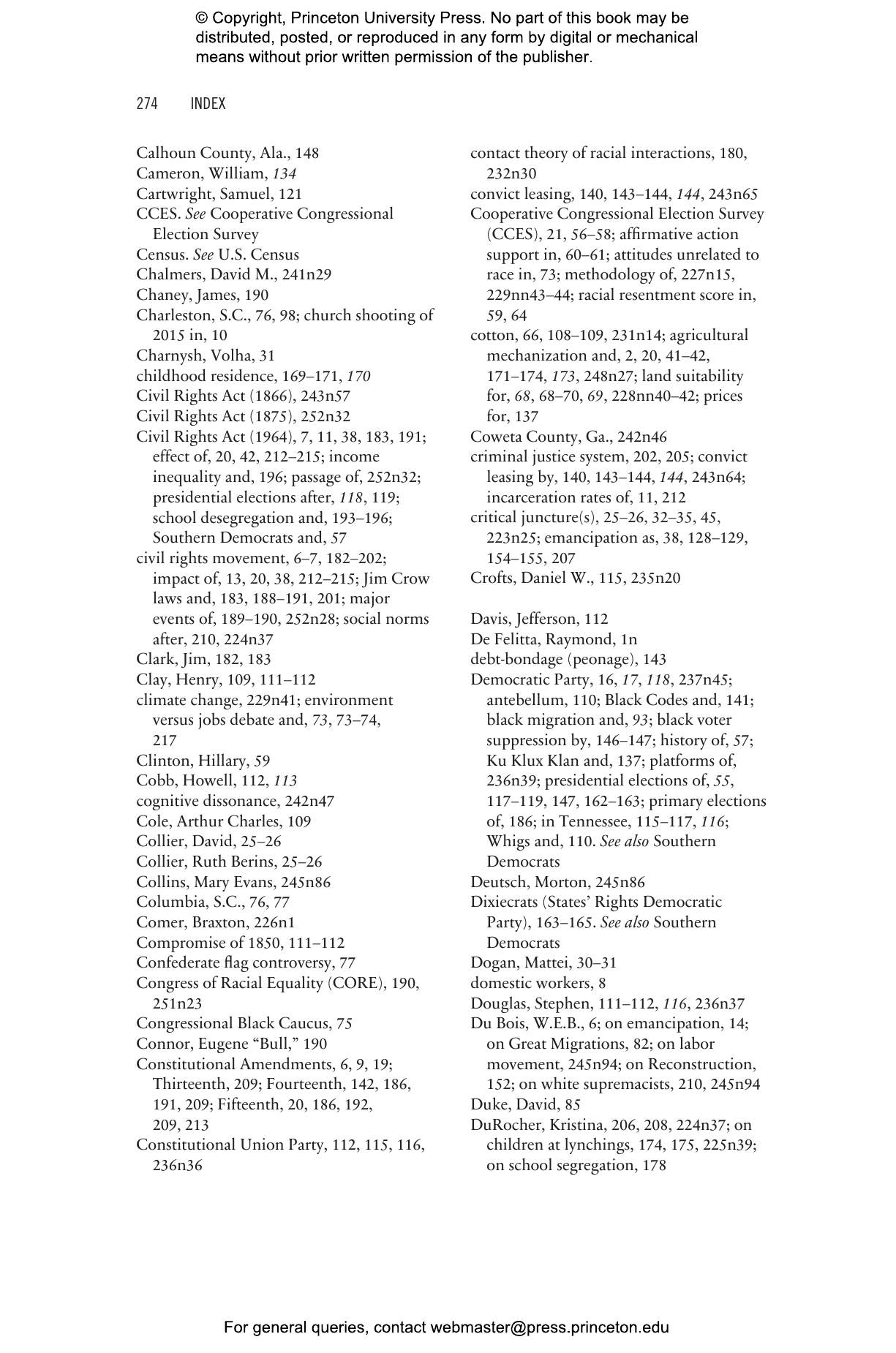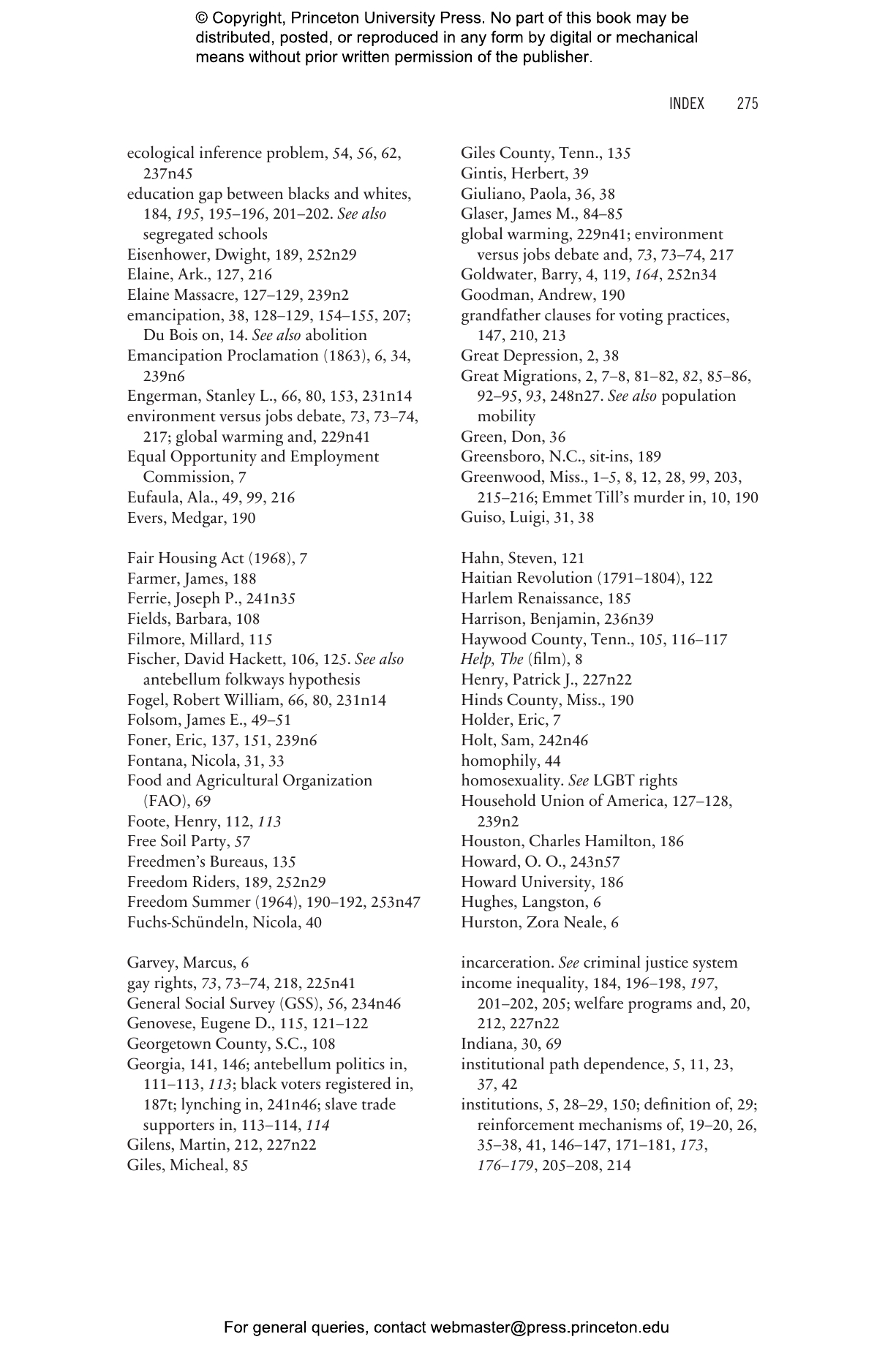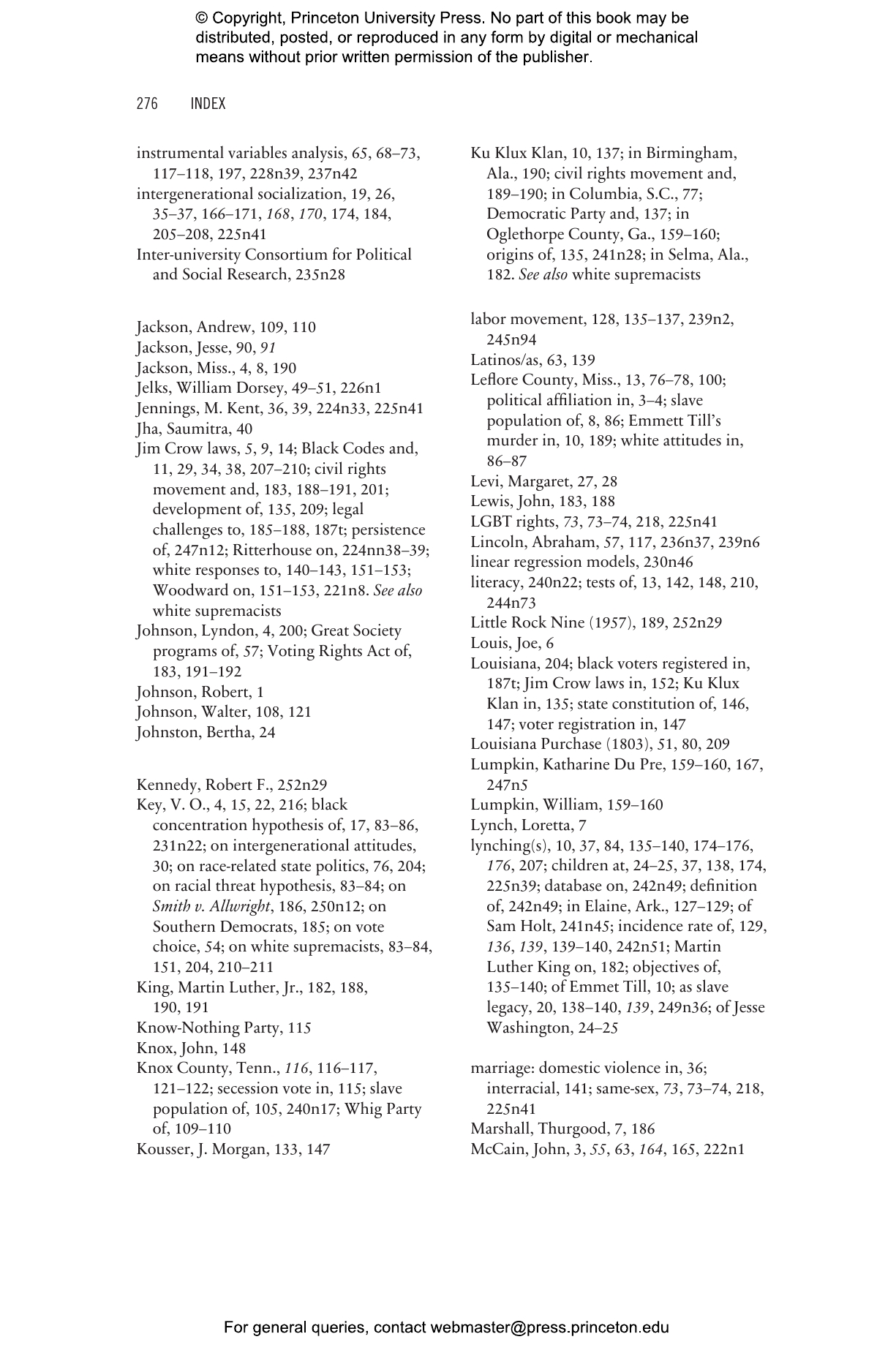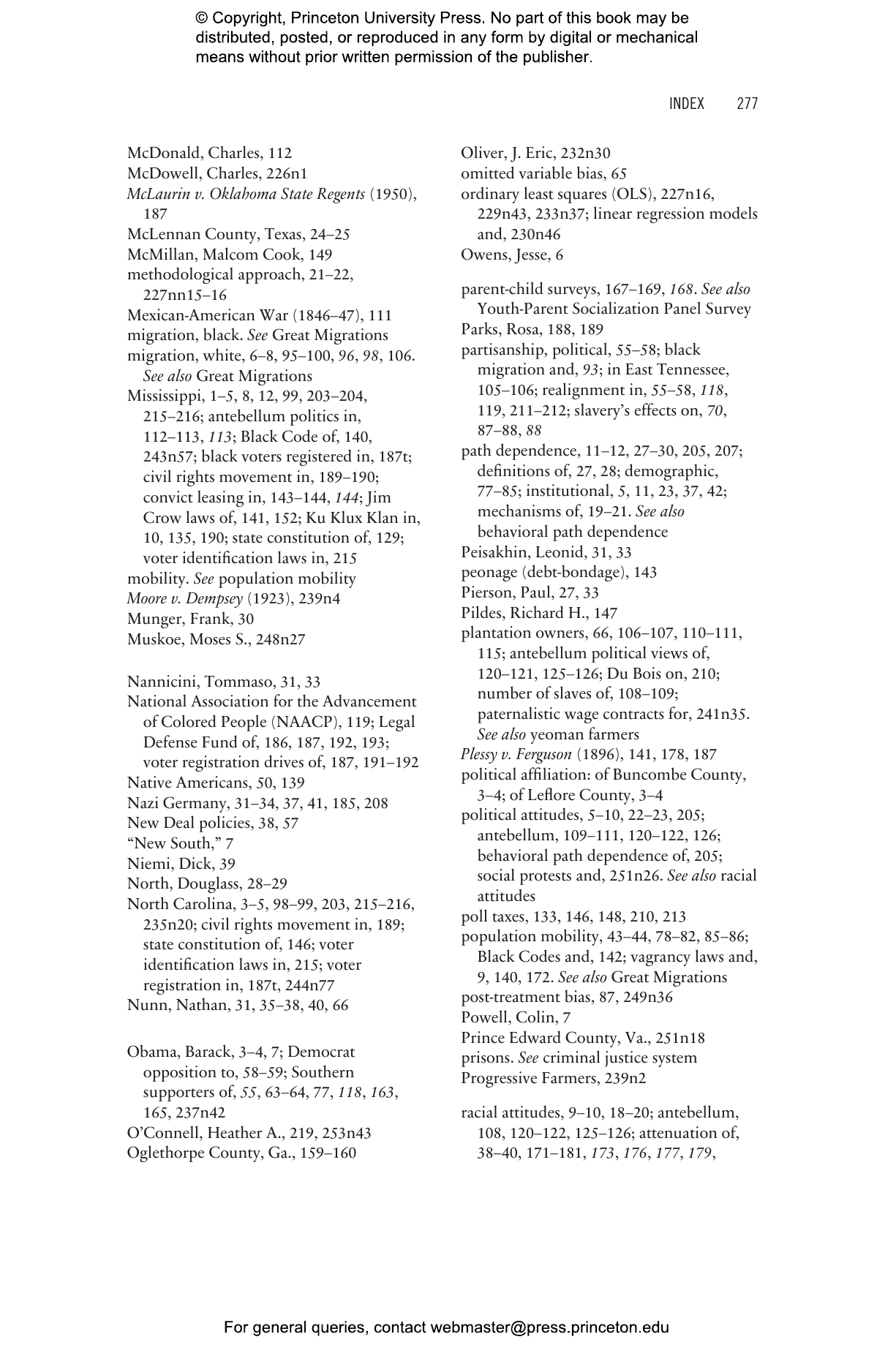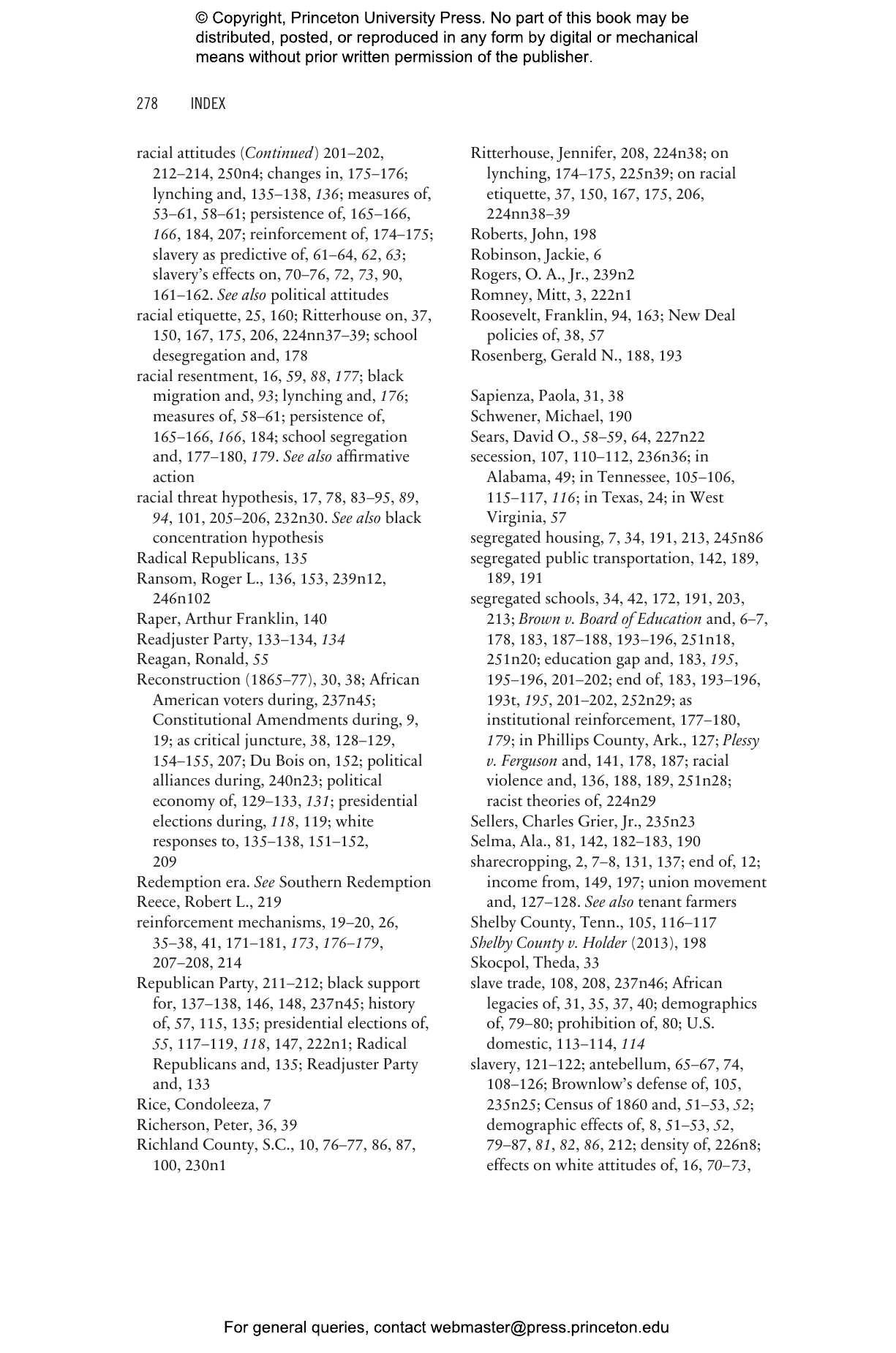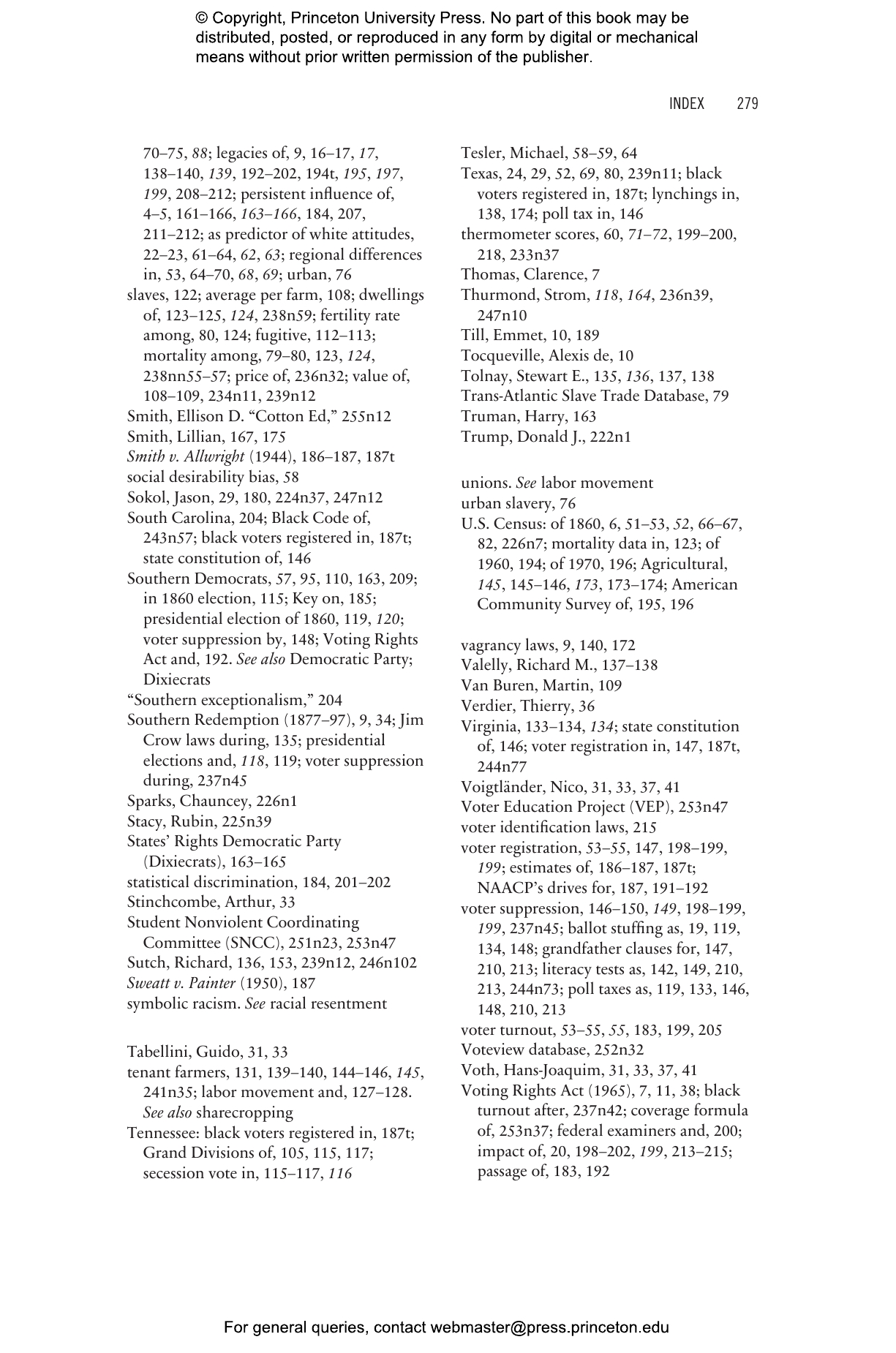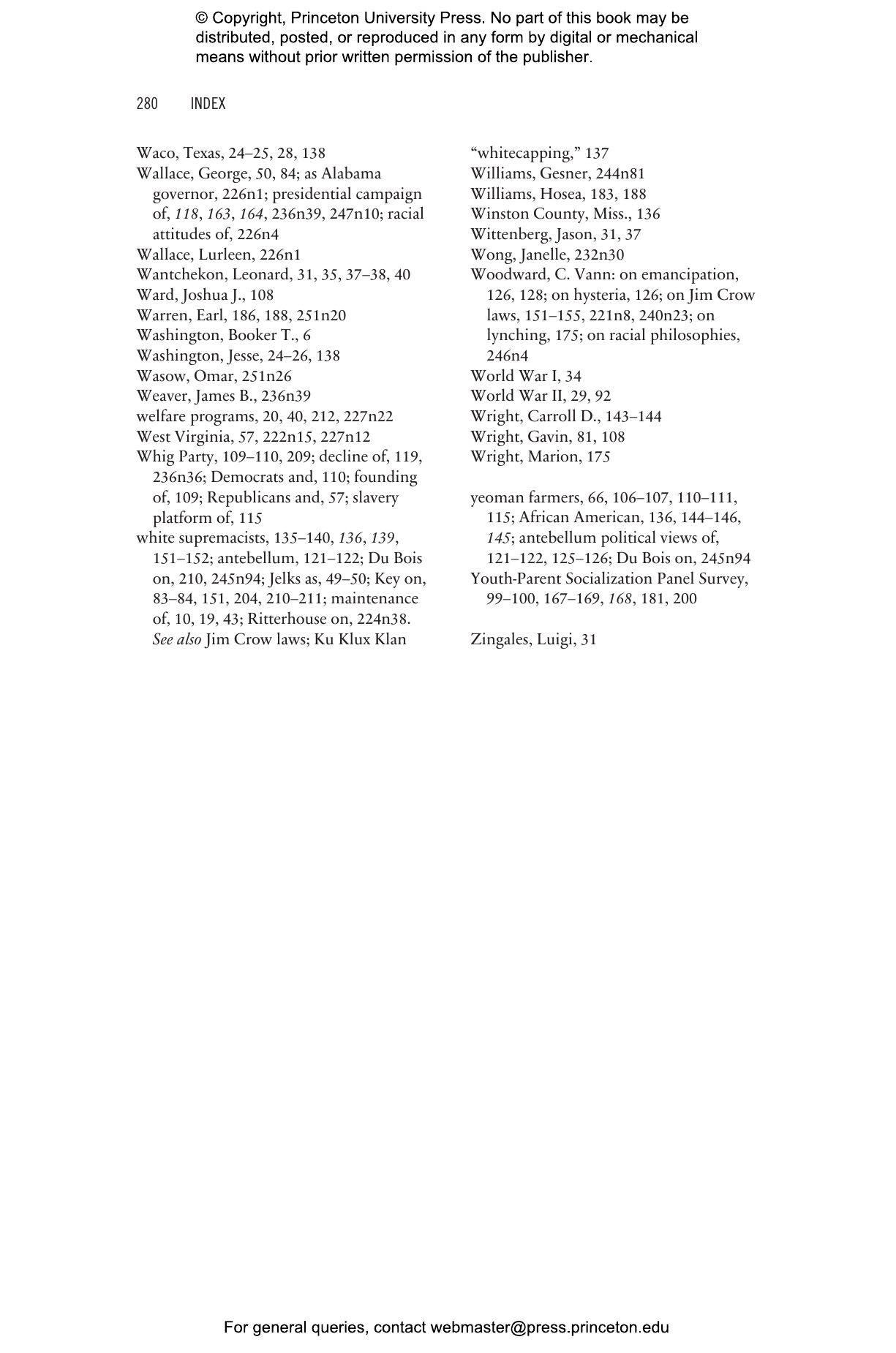Despite dramatic social transformations in the United States during the last 150 years, the South has remained staunchly conservative. Southerners are more likely to support Republican candidates, gun rights, and the death penalty, and southern whites harbor higher levels of racial resentment than whites in other parts of the country. Why haven’t these sentiments evolved or changed? Deep Roots shows that the entrenched political and racial views of contemporary white southerners are a direct consequence of the region’s slaveholding history, which continues to shape economic, political, and social spheres. Today, southern whites who live in areas once reliant on slavery—compared to areas that were not—are more racially hostile and less amenable to policies that could promote black progress.
Highlighting the connection between historical institutions and contemporary political attitudes, the authors explore the period following the Civil War when elite whites in former bastions of slavery had political and economic incentives to encourage the development of anti-black laws and practices. Deep Roots shows that these forces created a local political culture steeped in racial prejudice, and that these viewpoints have been passed down over generations, from parents to children and via communities, through a process called behavioral path dependence. While legislation such as the Civil Rights Act and the Voting Rights Act made huge strides in increasing economic opportunity and reducing educational disparities, southern slavery has had a profound, lasting, and self-reinforcing influence on regional and national politics that can still be felt today.
A groundbreaking look at the ways institutions of the past continue to sway attitudes of the present, Deep Roots demonstrates how social beliefs persist long after the formal policies that created those beliefs have been eradicated.
Awards and Recognition
- Winner of the William H. Riker Book Award, Political Economy Section of the American Political Science Association
- Best Book of the Year by one of Politico's Top 50 Thinkers (Sean McElwee)
"This book is one of the most mind-blowing books I’ve encountered recently."—Chris Hayes
"Scholars of racial attitudes have long considered how such attitudes are transmitted across generations through history, culture, and institutions, and Deep Roots makes a historically penetrating and theoretically meaningful contribution to that body of literature. The book is engaging and thorough in its analysis and puts forth theory that will be useful for readers specifically interested in the intersections of political geography, racial attitudes, and political behavior."—Amber Spry, Science
"Avidit Acharya, Matthew Blackwell, and Maya Sen powerfully argue in their recent book Deep Roots: How Slavery Still Shapes Southern Politics, it is the legacy of slavery and post-Civil War segregation that gave rise to the South’s current political culture."—Jeffrey D. Sachs, Project Syndicate
"A timely tome which explains why, from neo-Nazis marching in Charlottesville to Virginia politicians donning blackface, when it comes to the South, the more things change, the more they remain insane."—Kam Williams, Tri-State Defender
"In this major new interpretation of southern politics, Acharya, Blackwell, and Sen provide important evidence demonstrating that present-day racial and partisan cleavages among southern whites can be traced directly back to the legacy of slavery. The authors’ skillful use of a wide range of data sources offers rich insights into the connections between historical institutions and contemporary political attitudes."—Eric Schickler, University of California, Berkeley
"Presenting a compelling explanation for why areas of the American South have been left behind, Deep Roots is a salutary challenge to those of us who complacently celebrate changes wrought in the region since the 1960s. A must-read for those who seek to understand the modern South."—Anthony J. Badger, author of FDR: The First Hundred Days
"Deep Roots provocatively argues that the shock of emancipation and its aftermath triggered broad social and political changes in parts of the American South that were most heavily dependent on cotton production, and therefore needing cheap labor. Those areas today remain the most racially conservative among southern whites, with continuing political effects. This is a gripping book."—David O. Sears, University of California, Los Angeles
"This book conveys a powerful message: the influence of chattel slavery is deeply—but variably—embedded in the contemporary political landscape of the American South. Communities where slavery once flourished now are especially conservative, hostile to African Americans, and opposed to race-based policies. Communities with weaker ties to slavery, by contrast, look very different today. Written by a first-rate team of scholars, Deep Roots is a model of theoretically informed historical scholarship."—William Howell, University of Chicago
"As our nation confronts the continuing role of white supremacy, Deep Roots argues that slavery was not only a peculiar institution, it was also a persistent one, its effects reverberating over time. This convincing and carefully researched book shows that contemporary political orientations in the white South are rooted in the political geography of slavery, its political economy, and its evolving system of racial domination. Deep Roots represents a defining moment in the field of American politics."—Vesla Mae Weaver, coauthor of Arresting Citizenship
"A seminal look at how America’s extractive past has fundamentally determined its current politics. Deep Roots will resonate with what you know and reshape how you think."—James Robinson, University of Chicago
"This book's arguments can't be right, can they? But the authors bring evidence to bear so well that they have knocked the ball back into the skeptics' court. Deep Roots will be enormously productive in advancing knowledge—it is what we want books to be."—Robert Mickey, author of Paths Out of Dixie
